Explore Plovdiv, Bulgaria: A Perfect 1-Day Itinerary
Plovdiv, Bulgaria
1 days
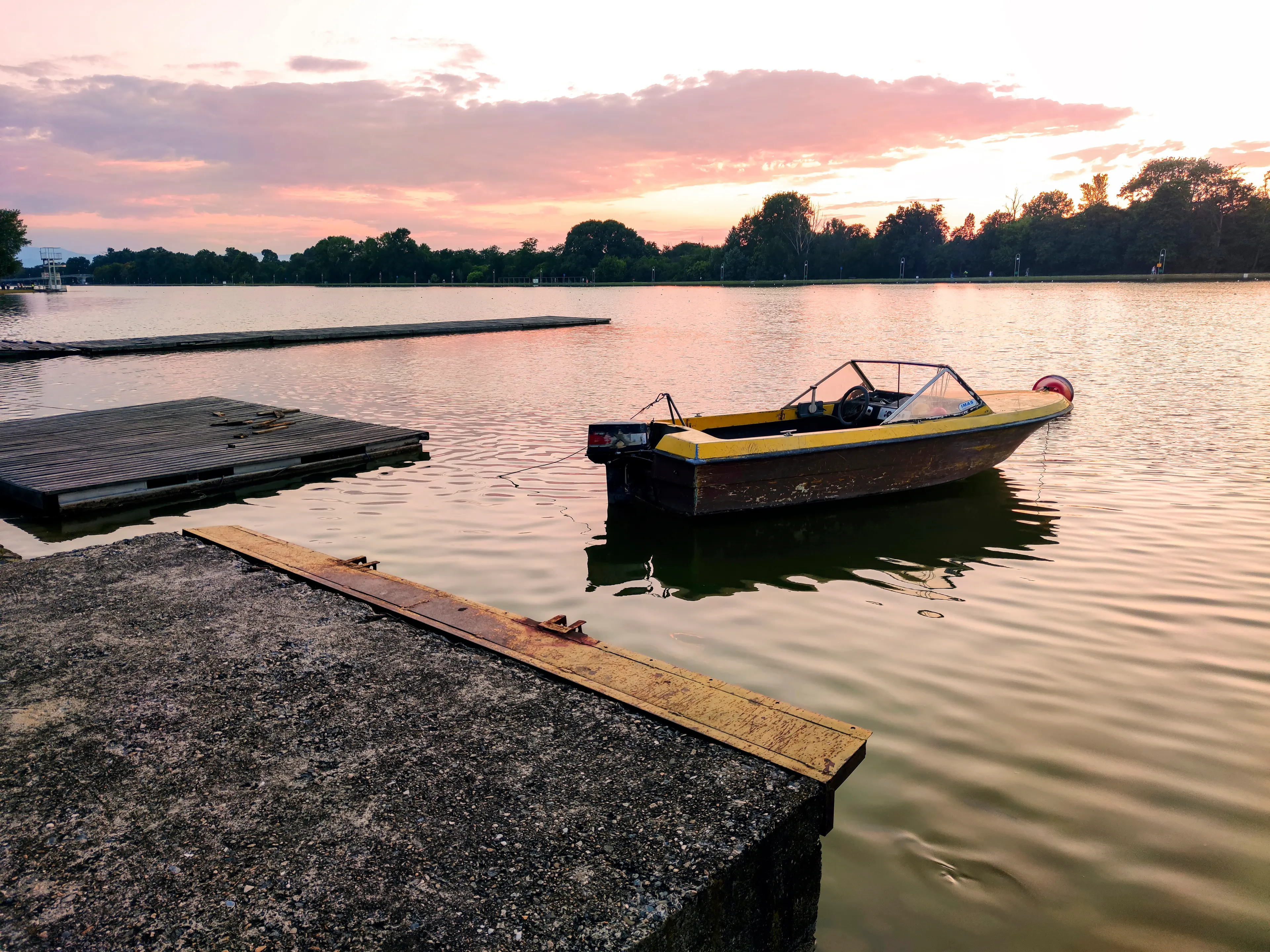
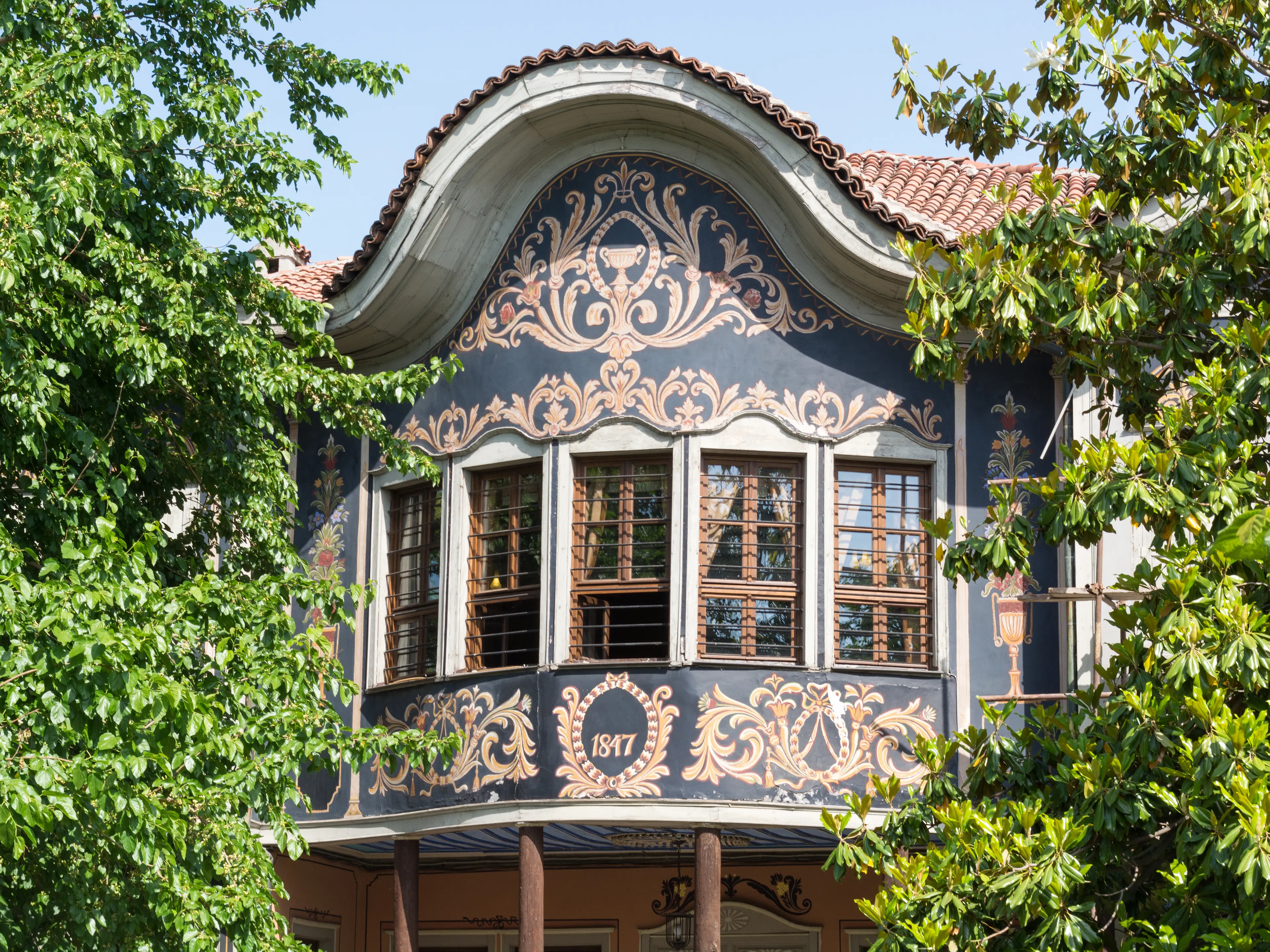
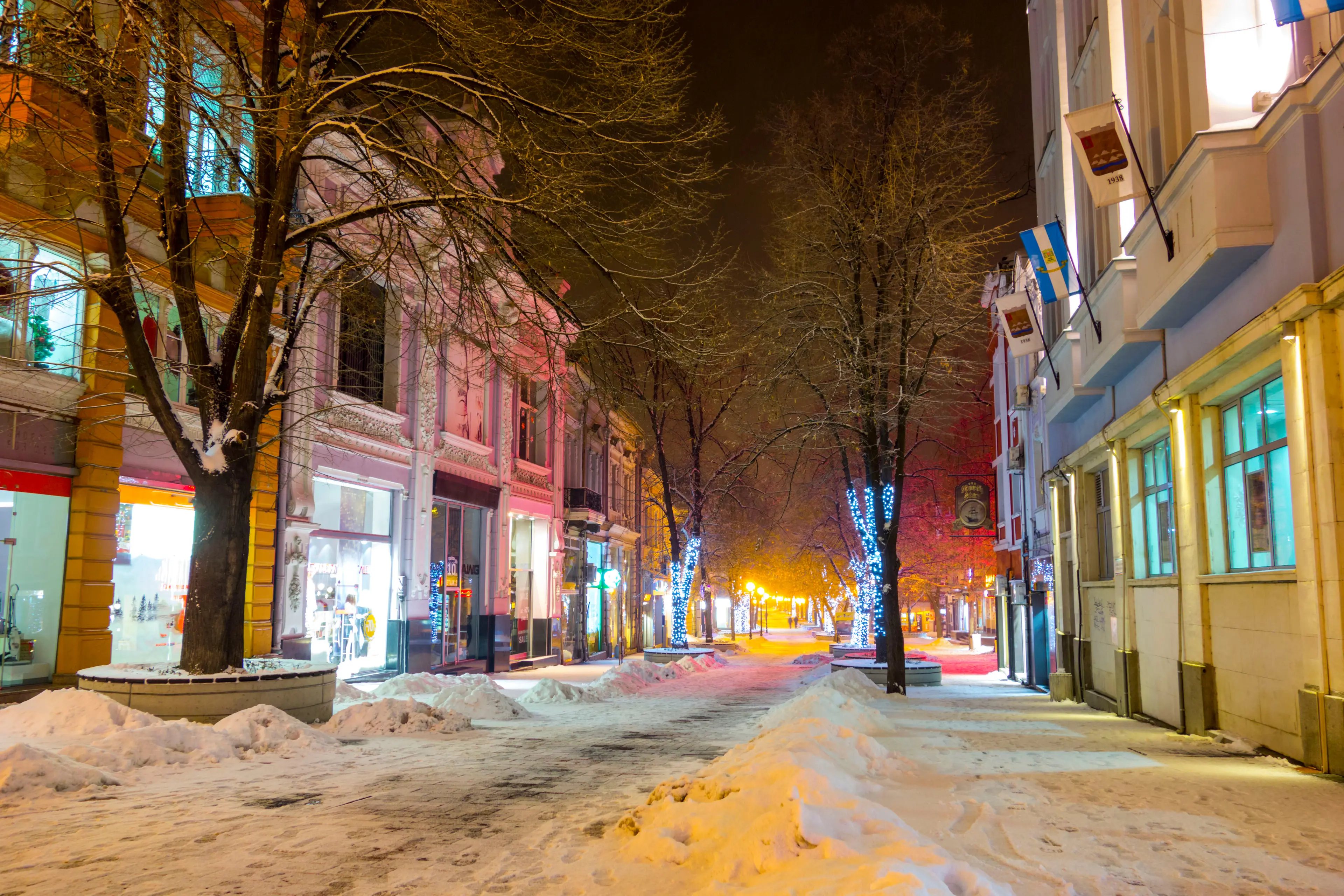
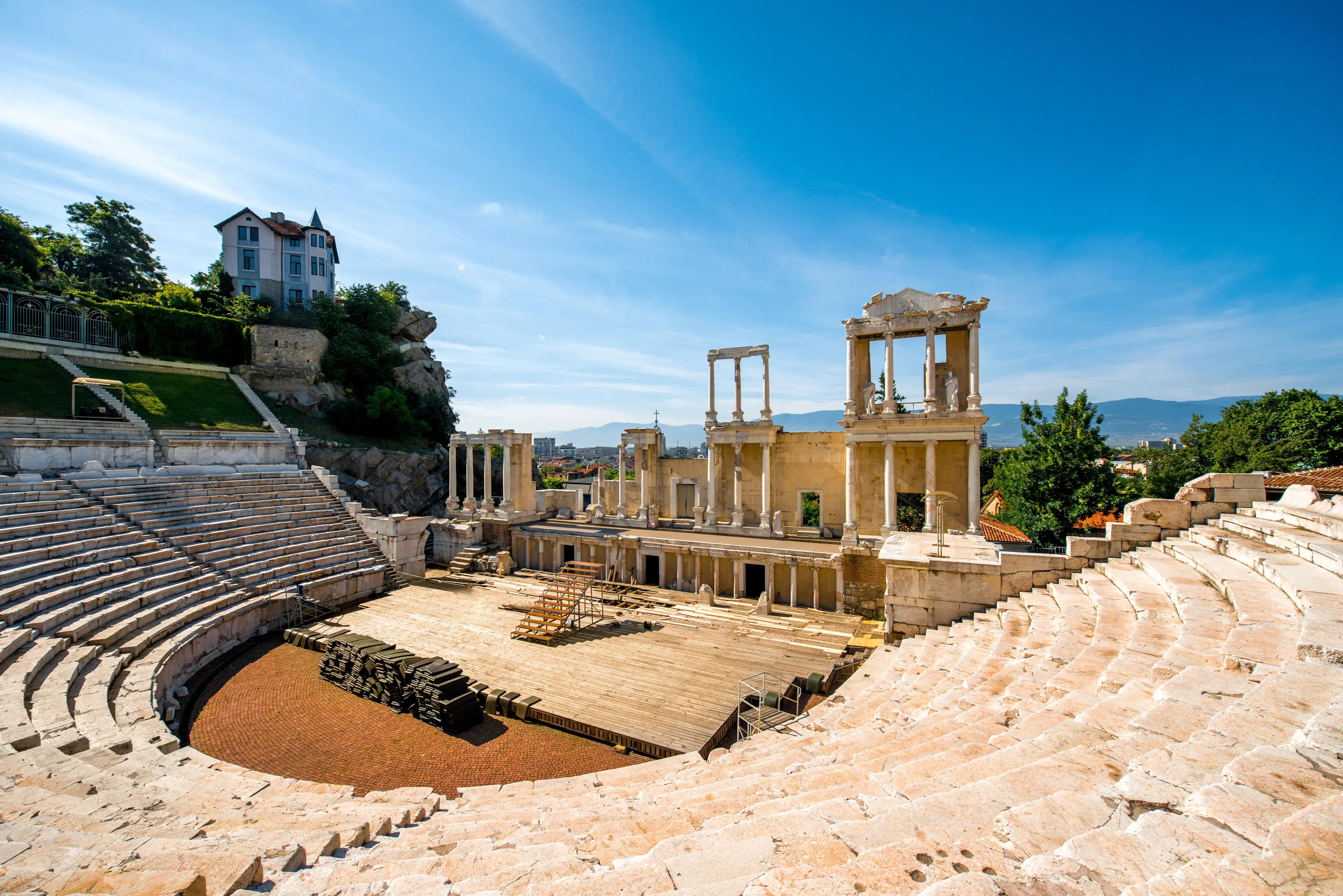
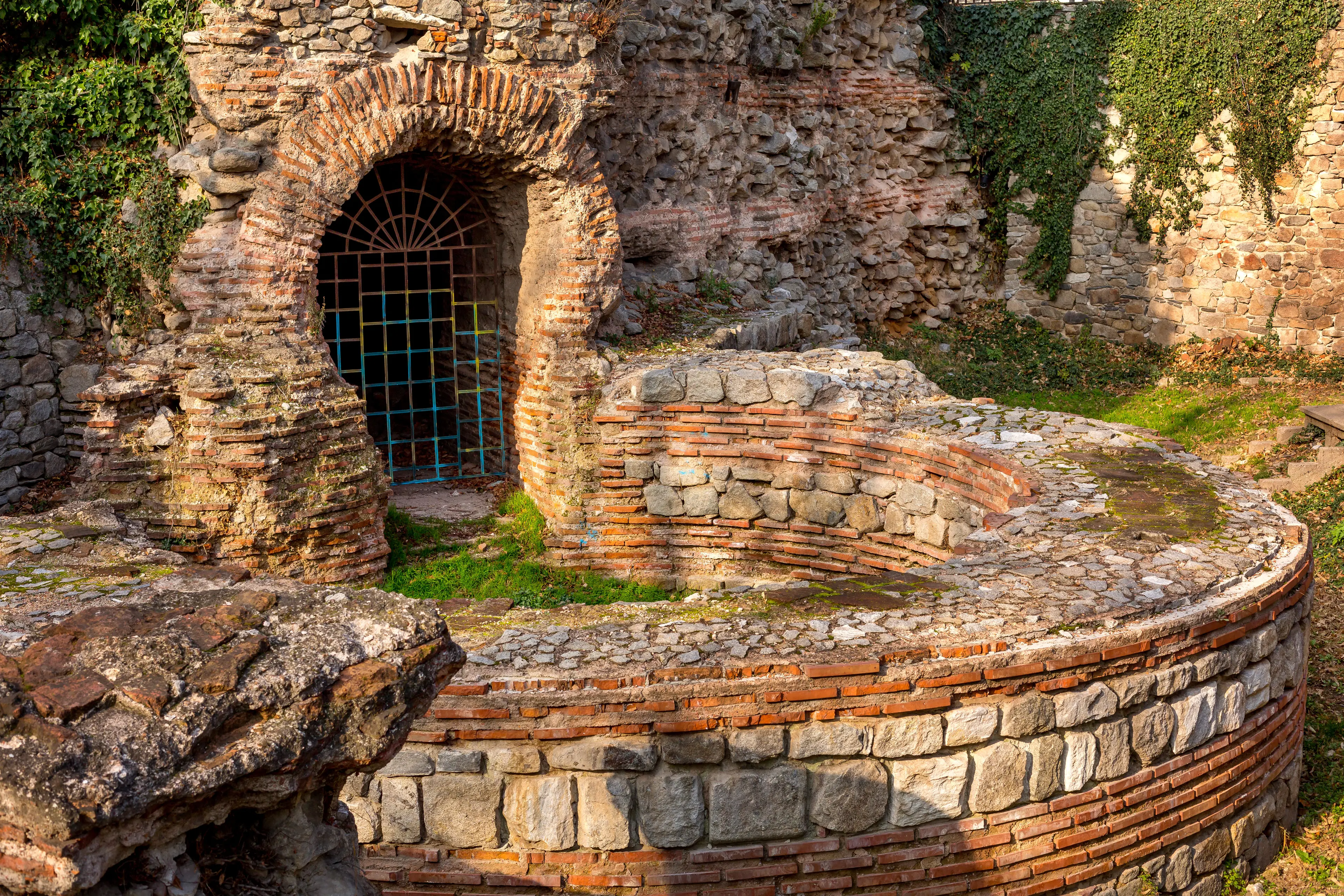
About Plovdiv, Bulgaria
Discover the charm of Plovdiv, Bulgaria, one of Europe's oldest cities. This vibrant city is a blend of ancient history and modern culture, boasting a stunning Roman amphitheatre, the picturesque Old Town, and a thriving arts scene. Explore the cobblestone streets, lined with colorful 19th-century houses, art galleries, and trendy cafes. Visit the Ancient Theatre, a well-preserved Roman structure still used for performances. Don't miss the Plovdiv Regional Ethnographic Museum for a glimpse into Bulgarian history and culture. Enjoy local cuisine and wines at the city's numerous restaurants and wineries. Plovdiv, with its rich history, cultural heritage, and warm hospitality, promises an unforgettable travel experience.
1-Day Itinerary
Attractions in Itinerary (4)
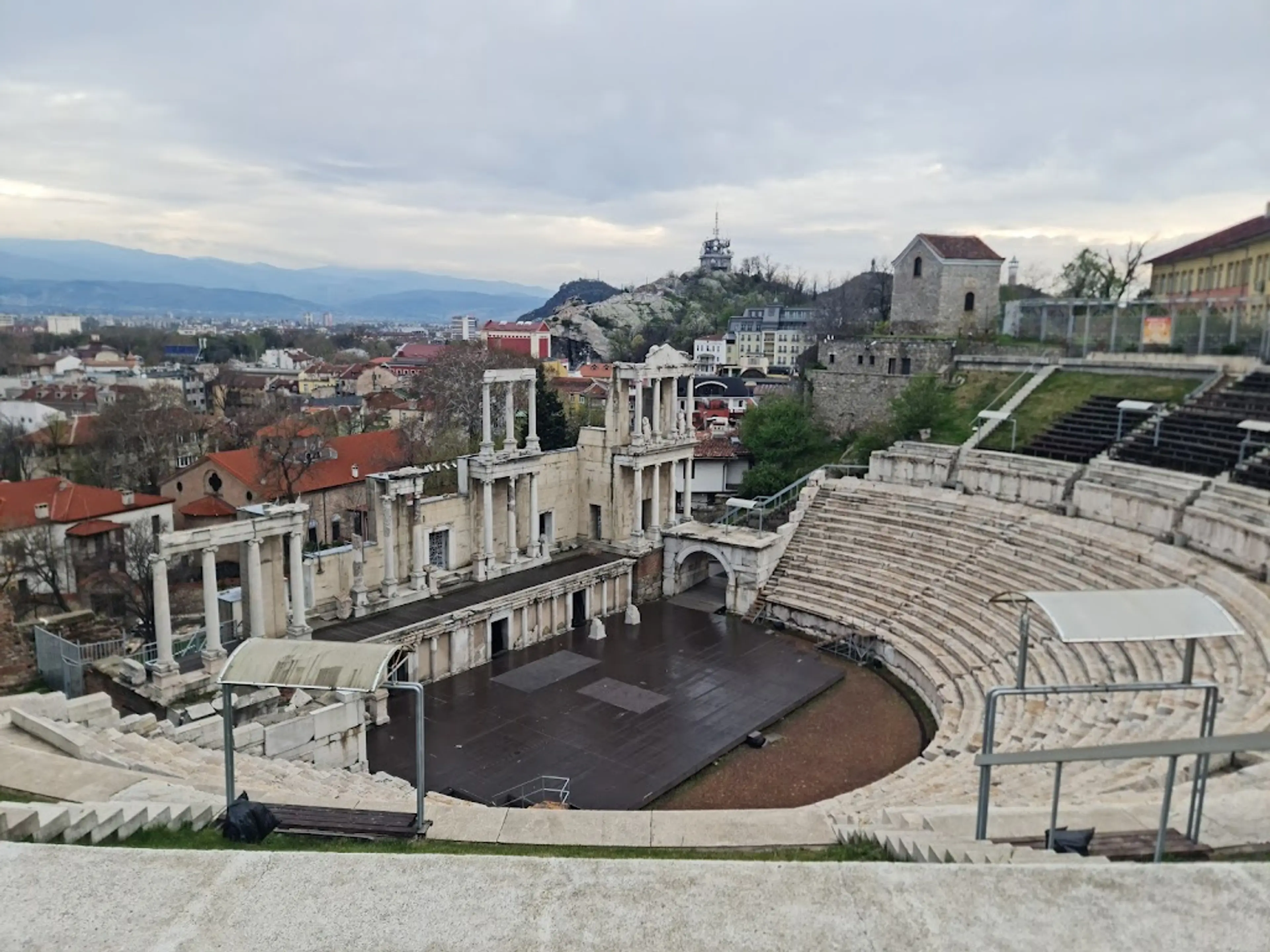
1Ancient Theater of Philippopolis
One of the world's best-preserved ancient theaters, located in the city center of Plovdiv. It was constructed in the 1st century AD during the reign of Emperor Domitian, under the rulership of Titus Flavius Cotis. It was only discovered during a landslide in the 1970s and is still in use today for performances.
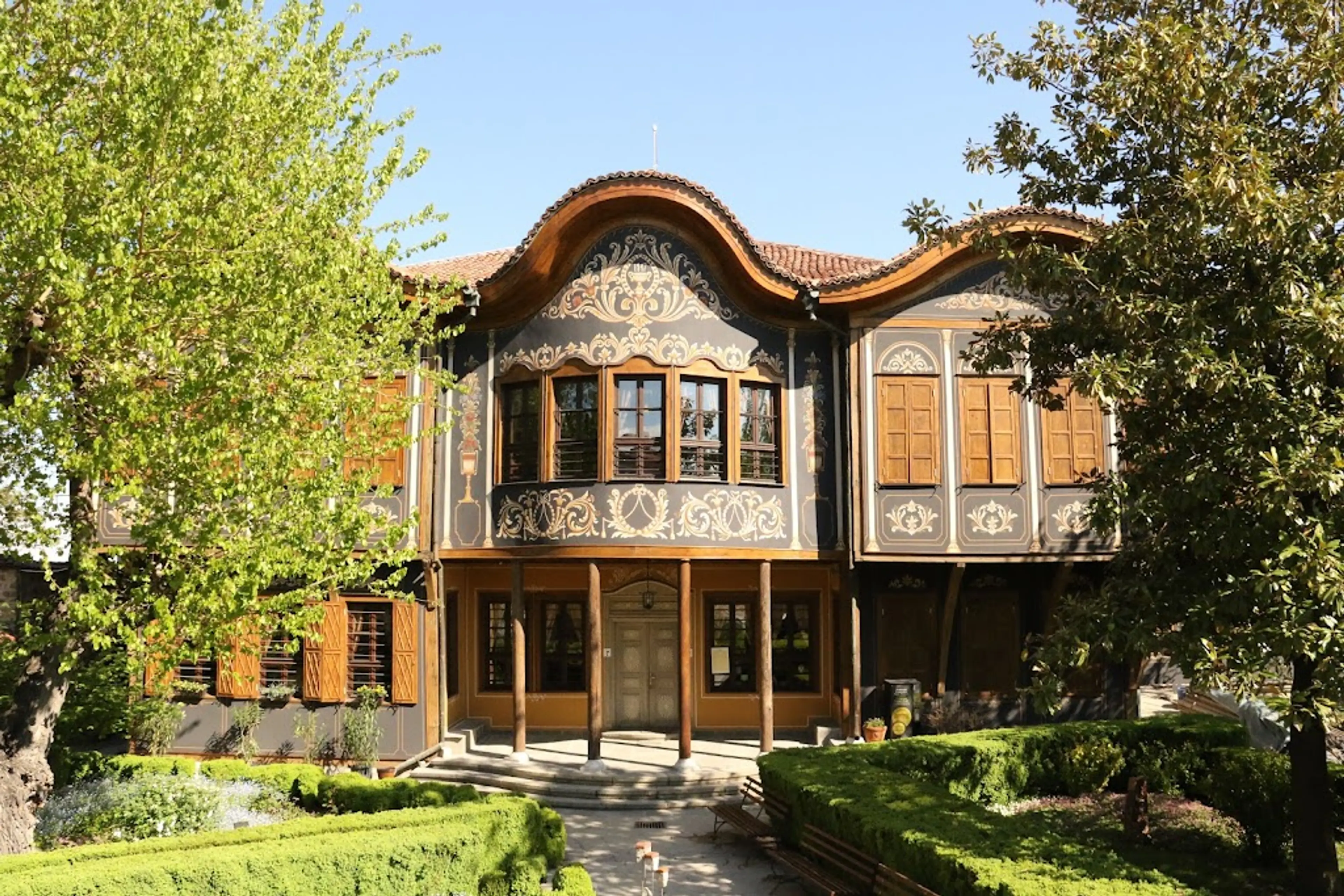
2Ethnographic Museum
Housed in a beautiful 19th-century house, the Ethnographic Museum showcases the rich cultural heritage of Plovdiv and the region. It has over 40,000 exhibits, including traditional costumes, crafts, and household items.

3Tsar Simeon Garden
A beautiful garden in the heart of Plovdiv, named after the Bulgarian Tsar Simeon. It's the perfect place to relax and enjoy the beauty of nature. The garden is home to the 'Singing Fountains', a popular attraction among locals and tourists alike.
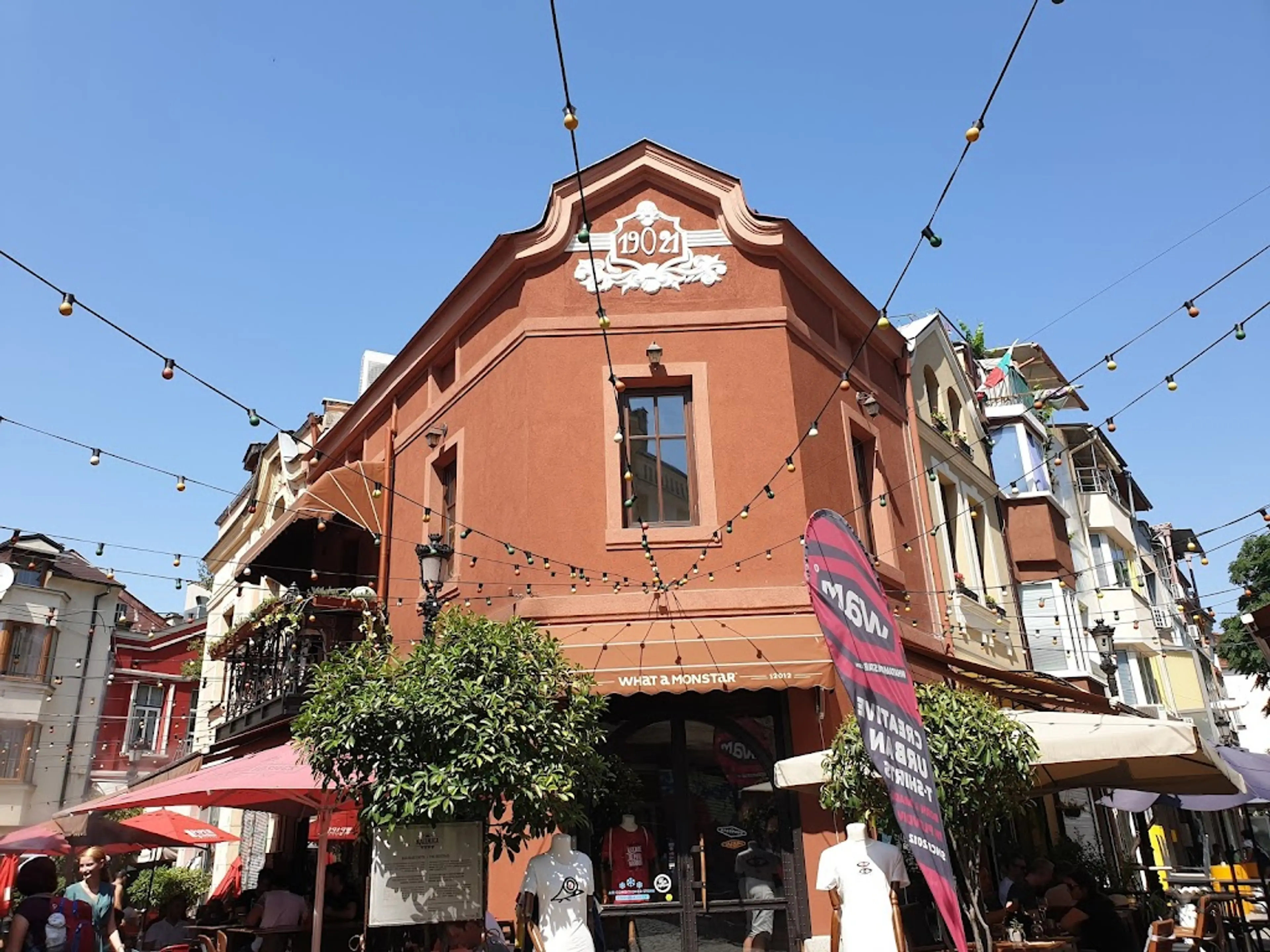
4Kapana district
Known as 'The Trap', Kapana district is a vibrant and artistic part of Plovdiv. It's filled with colorful 19th-century houses, trendy cafes, art galleries, and craft shops.
Local Food and Drinks (12)
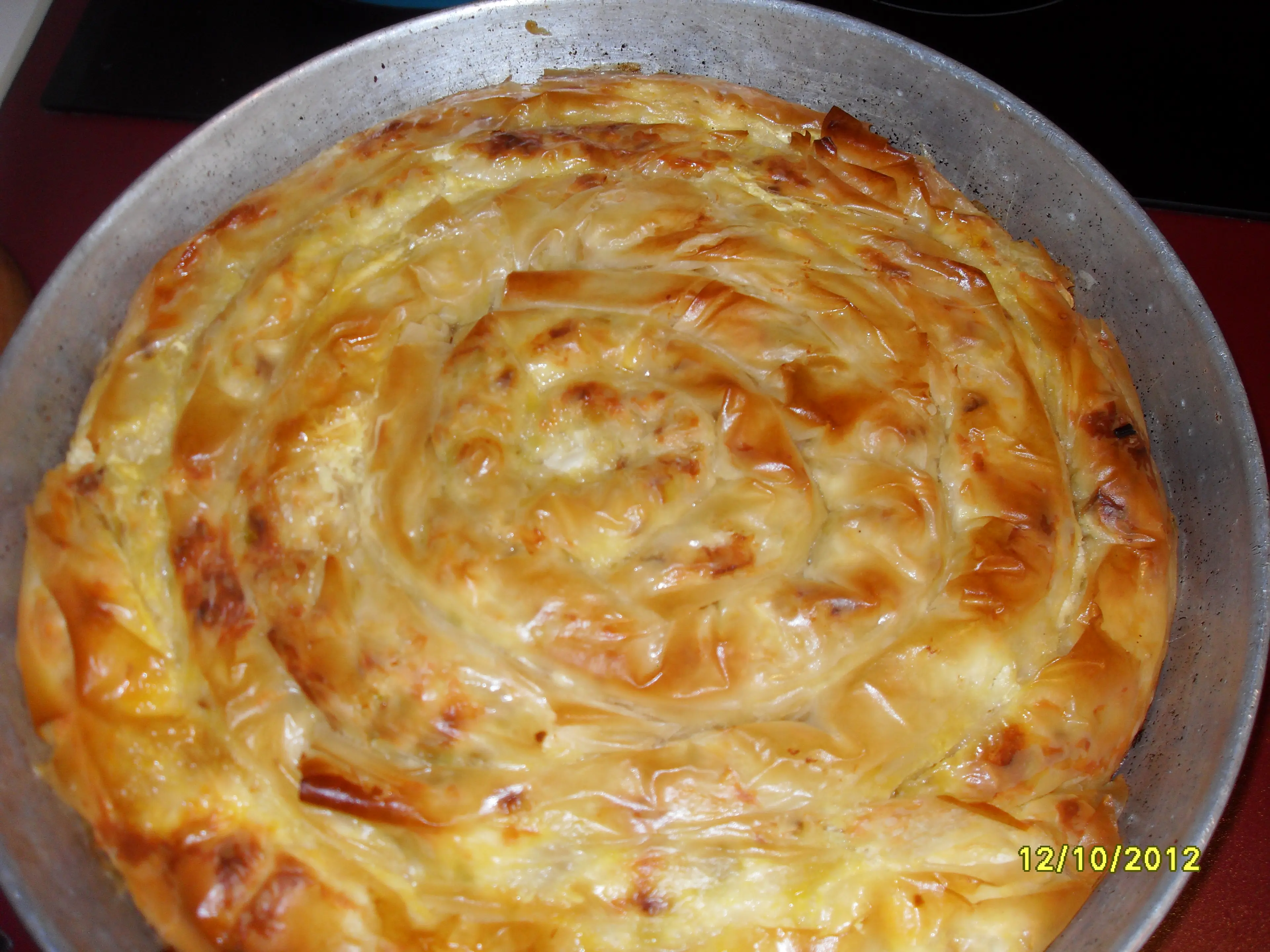
Banitsa
A traditional Bulgarian pastry made of whisked eggs and cheese between filo pastry, often enjoyed for breakfast in Plovdiv.
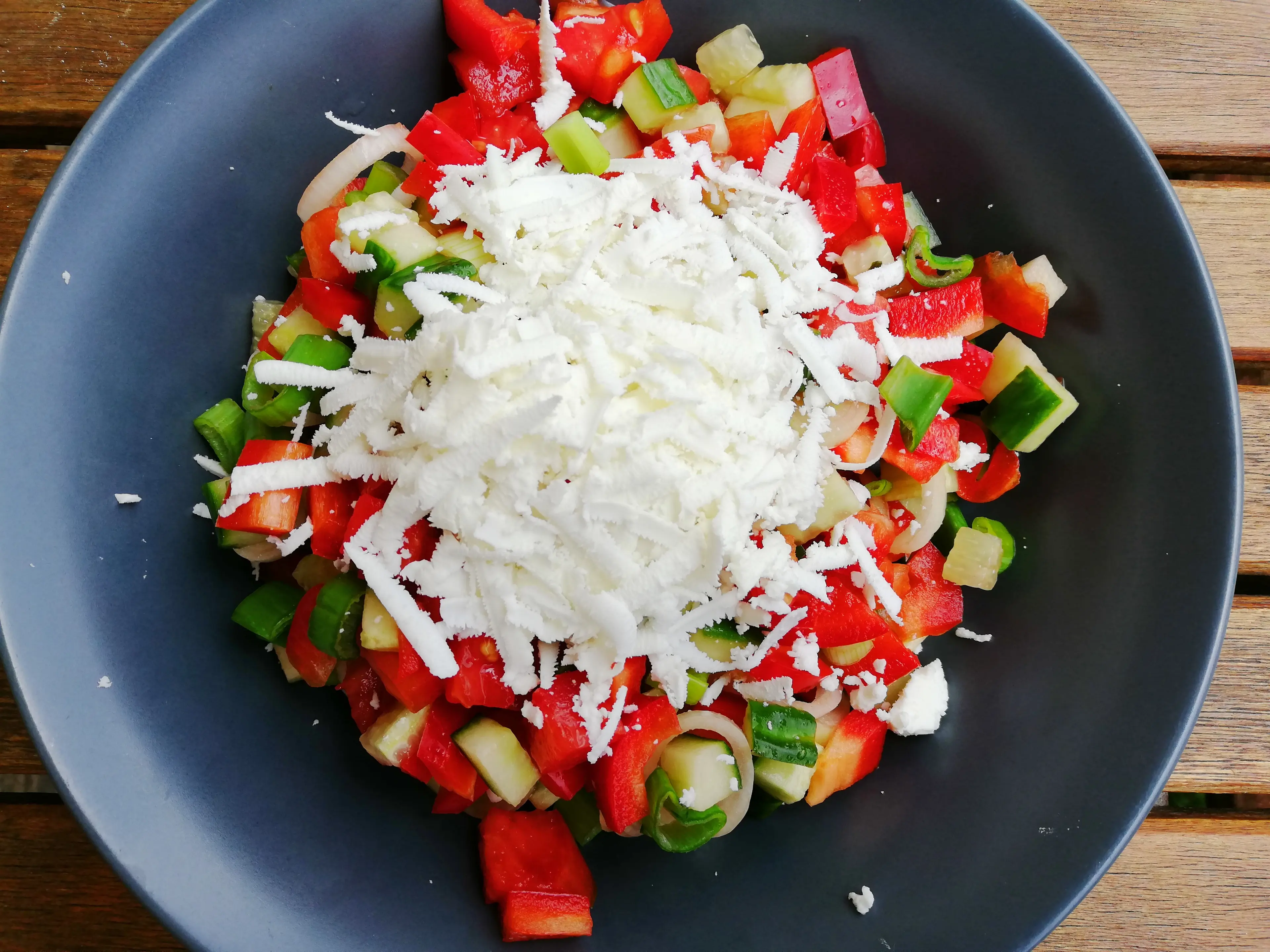
Shopska Salata
A refreshing salad made from tomatoes, cucumbers, onions, raw or roasted peppers, sirene (Bulgarian cheese), and parsley. It's a staple dish in Plovdiv.
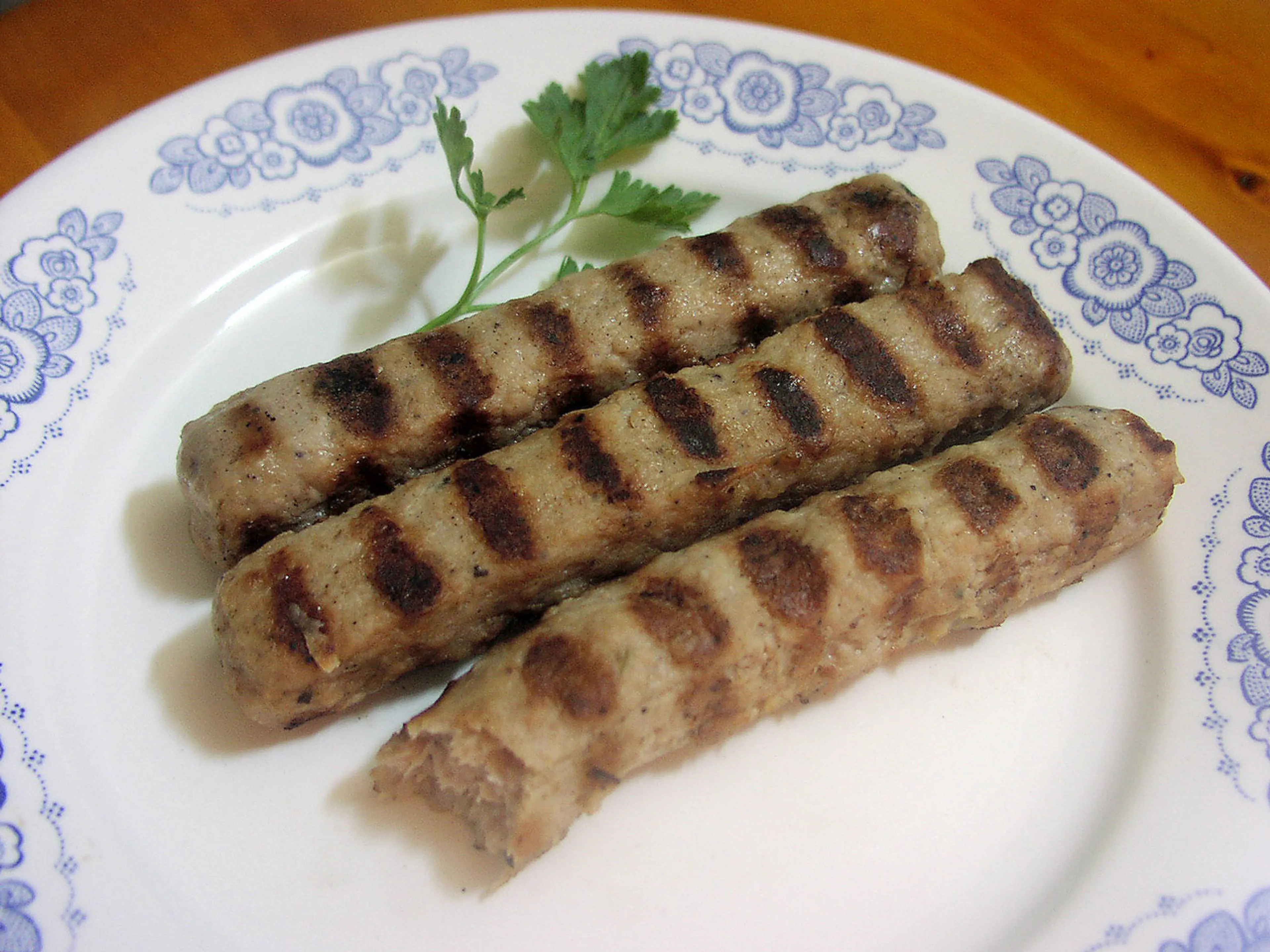
Kebapche
A Bulgarian dish of grilled minced meat with traditional spices, often served with sides of salad and chips in Plovdiv.
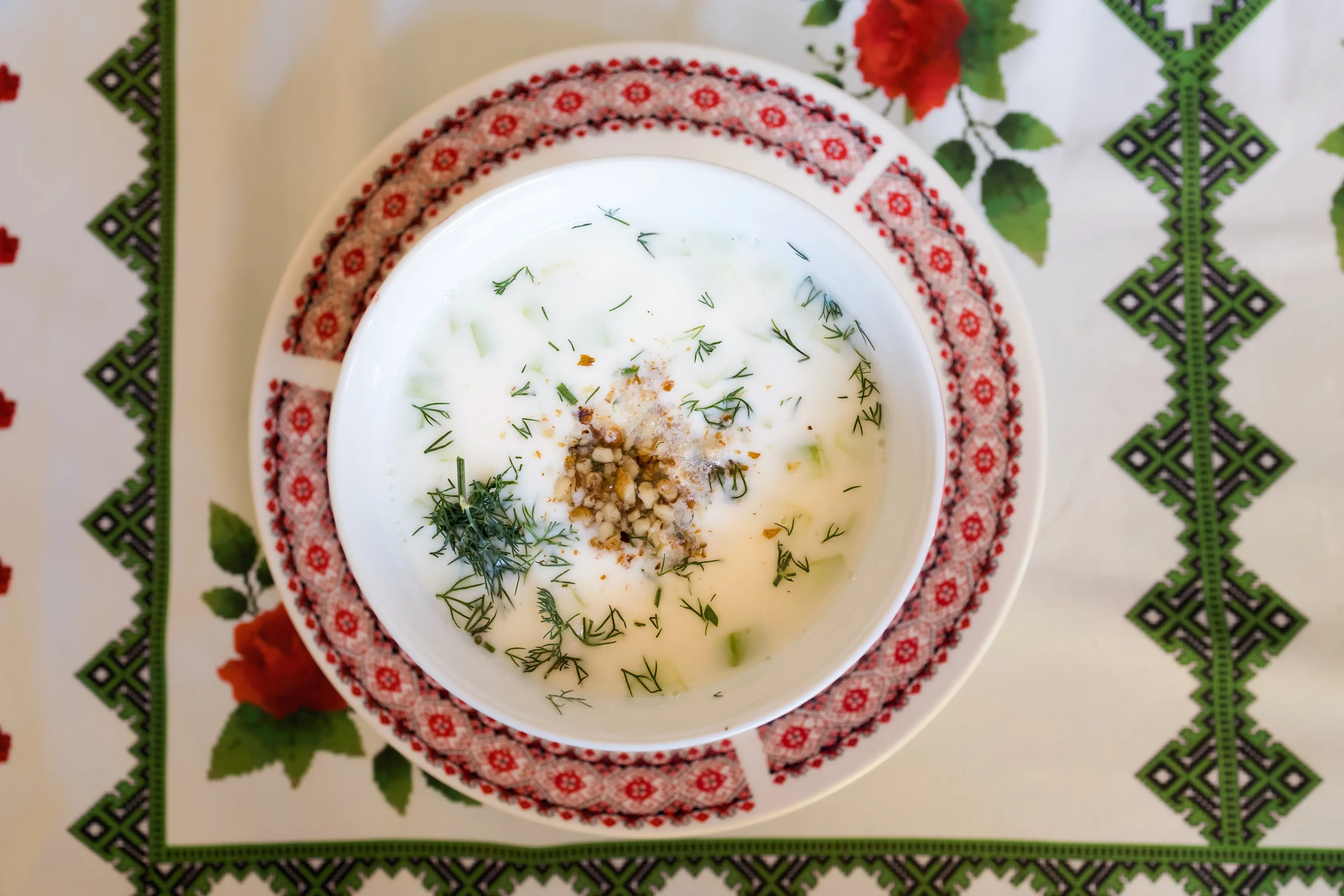
Tarator
A cold soup popular in Plovdiv during the summer, made from yogurt, cucumber, garlic, walnut, dill, water, and sunflower or olive oil.
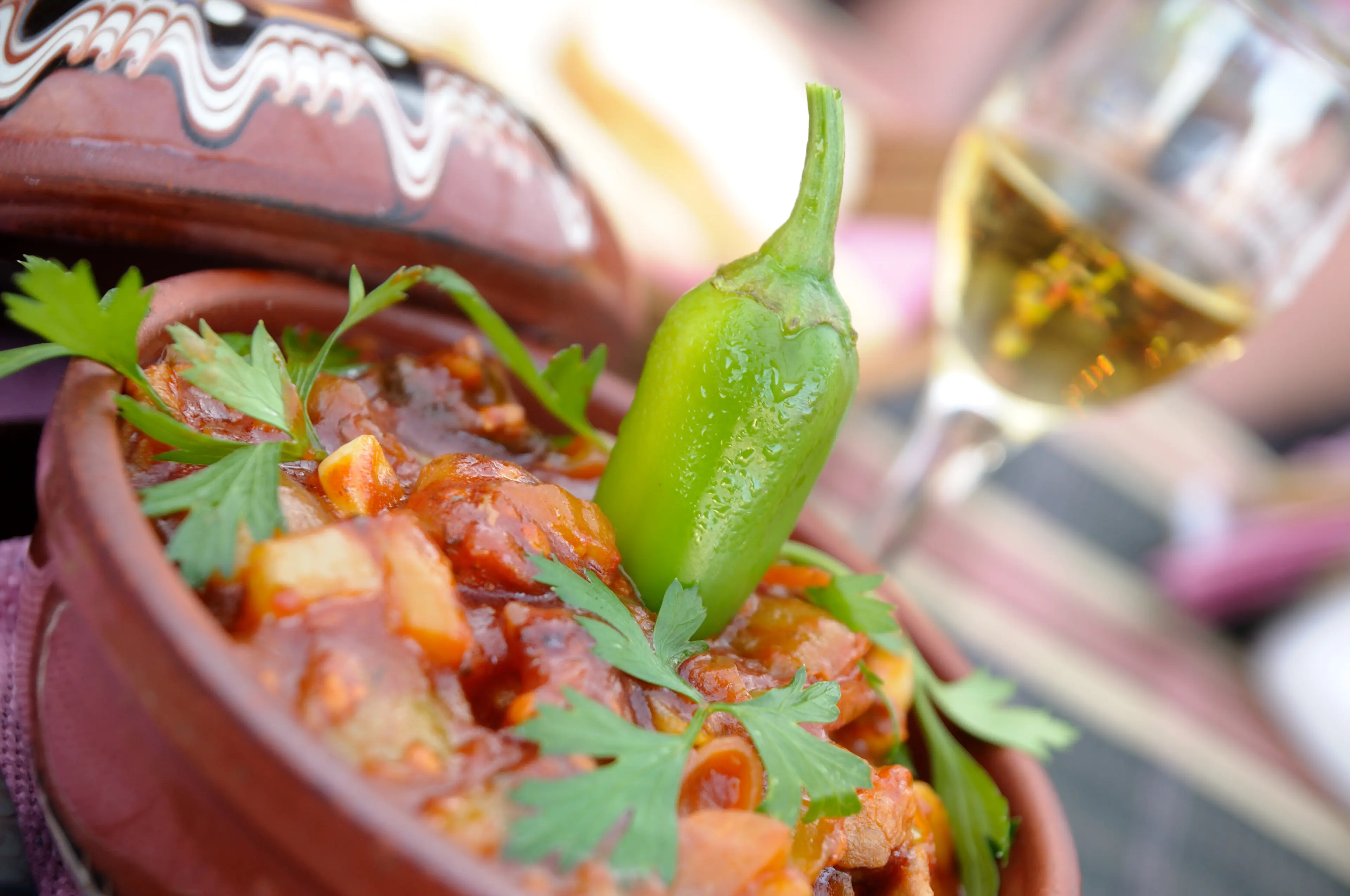
Kavarma
A traditional Bulgarian stew made from pork or chicken meat, onions, mushrooms, tomatoes, and Bulgarian spices. It's a common dish in Plovdiv.
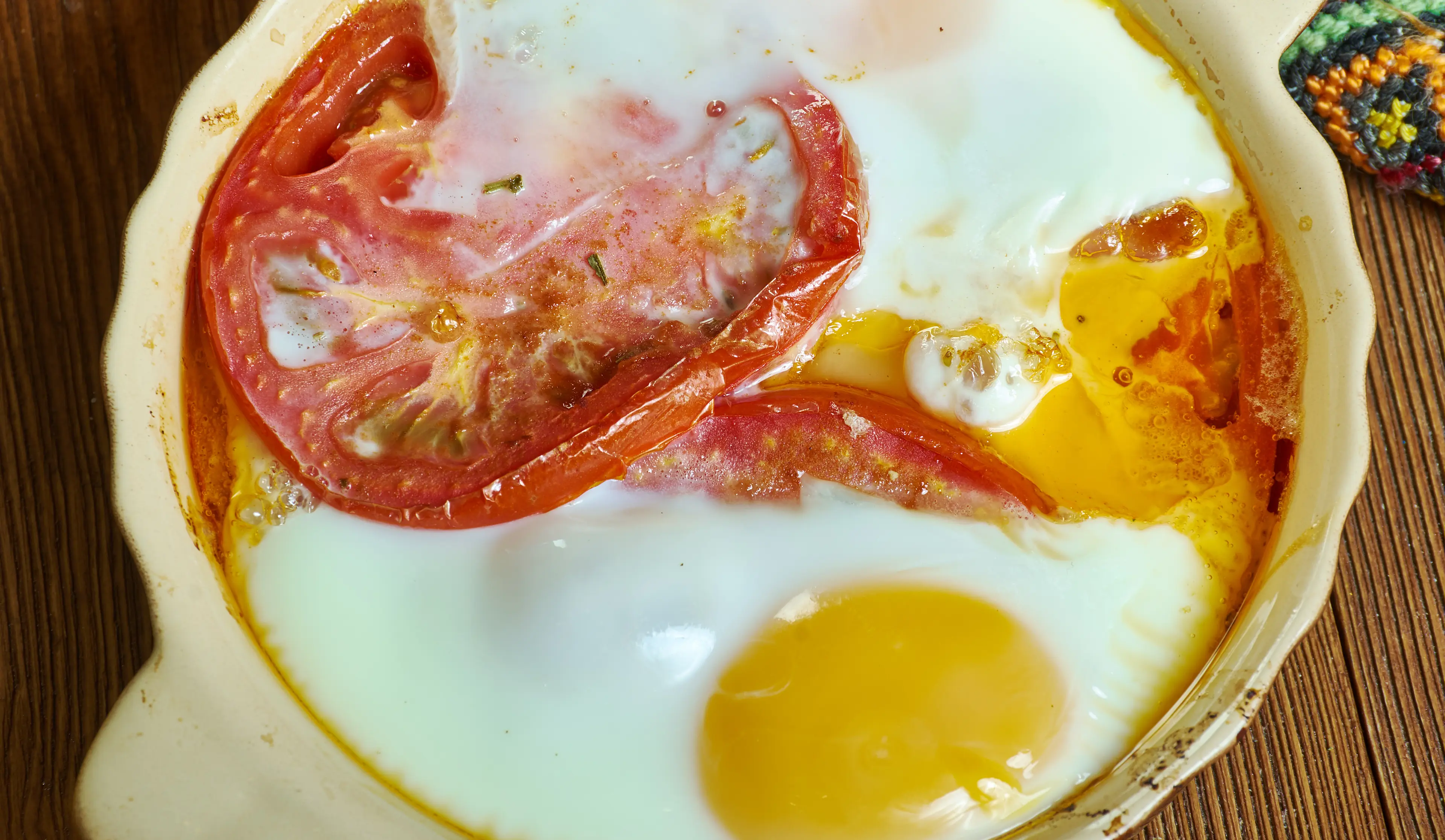
Sirene po Shopski
A traditional Bulgarian dish made from sirene (Bulgarian cheese) baked in a pot with eggs and tomatoes. It's a popular comfort food in Plovdiv.
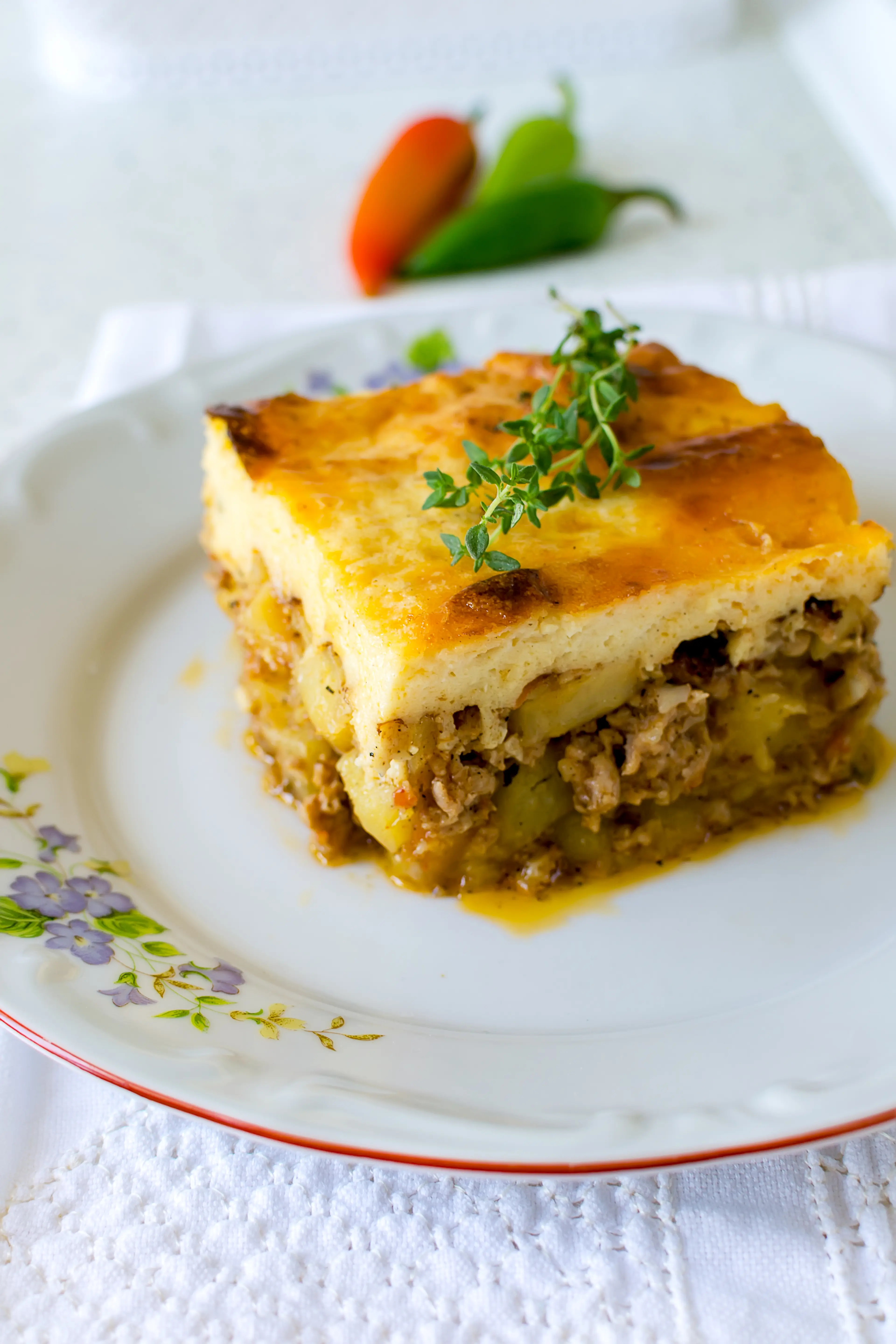
Moussaka
A traditional Bulgarian dish made from potatoes, eggs, and minced pork meat. It's a common main course in Plovdiv.
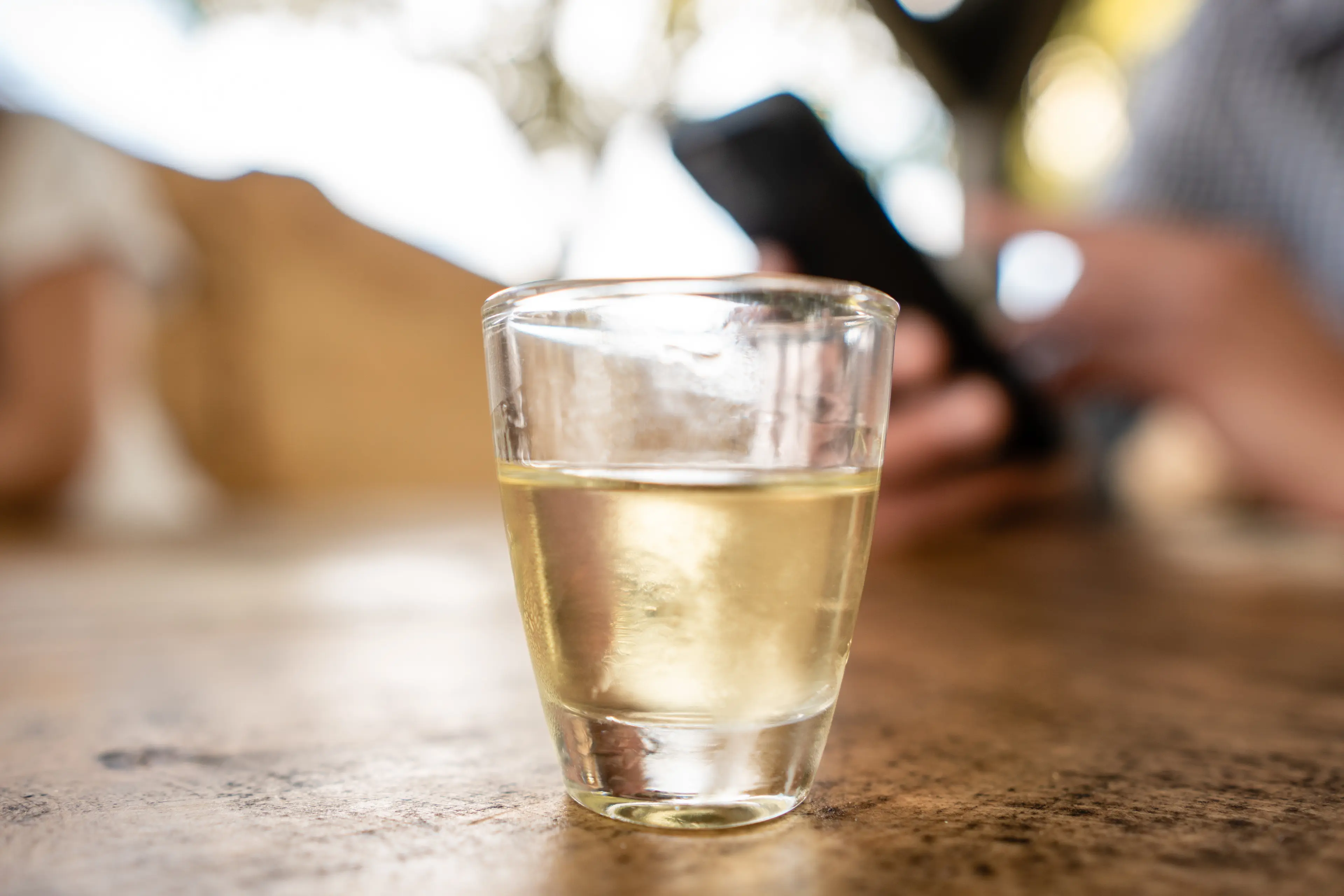
Rakia
A fruit brandy popular in Plovdiv and considered Bulgaria's national drink. It's often served as an aperitif.
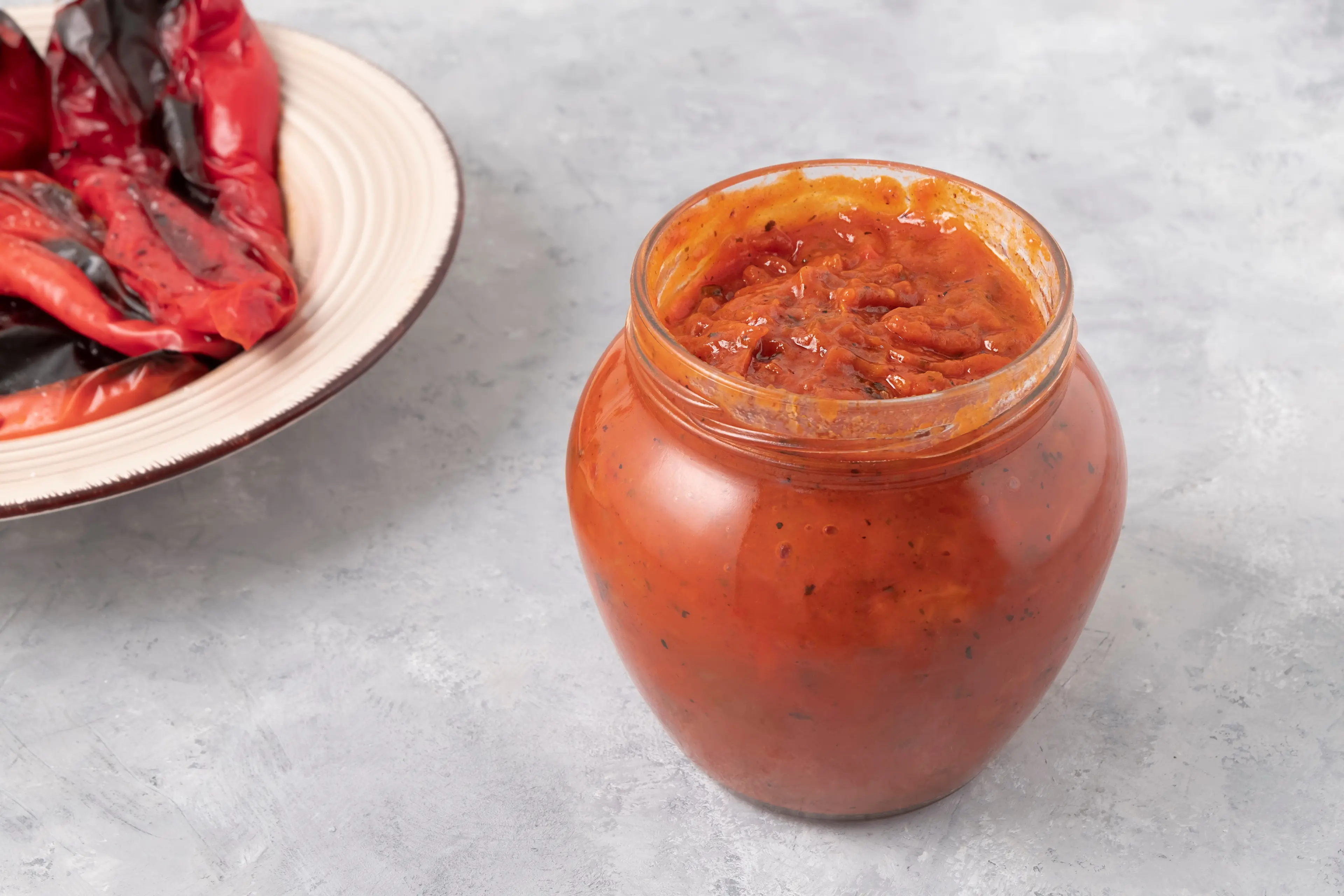
Lyutenitsa
A spicy vegetable relish or chutney. It's made from peppers, aubergines, carrots, garlic, and tomatoes and can be easily found in most Plovdiv restaurants.
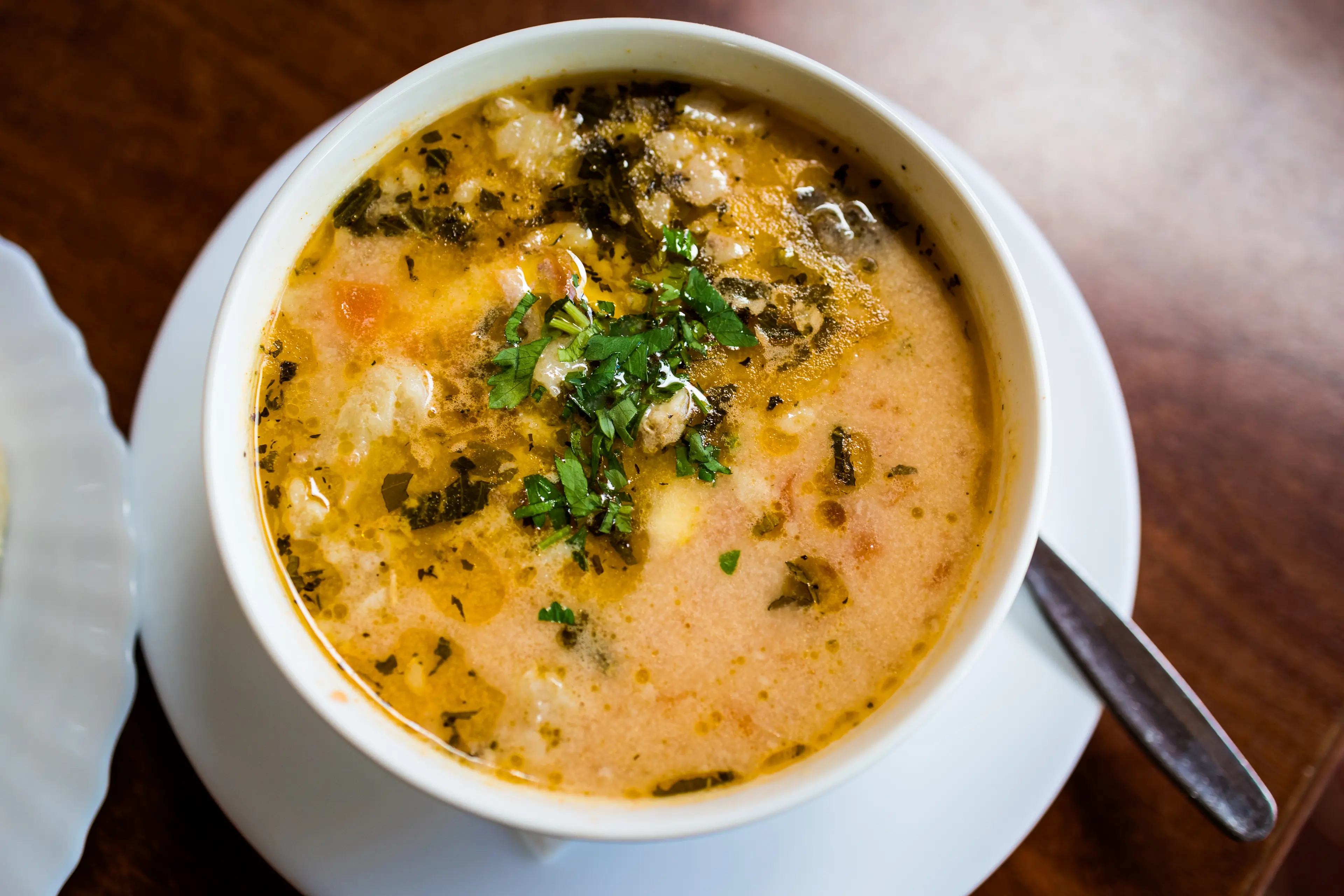
Shkembe Chorba
A traditional Bulgarian soup made from tripe, often seasoned with vinegar, garlic, and chili peppers. It's a popular hangover remedy in Plovdiv.
Kiselo Mlyako
A Bulgarian yogurt made from two types of bacteria, Lactobacillus Bulgaricus and Streptococcus Thermophilus. It's a staple dairy product in Plovdiv.
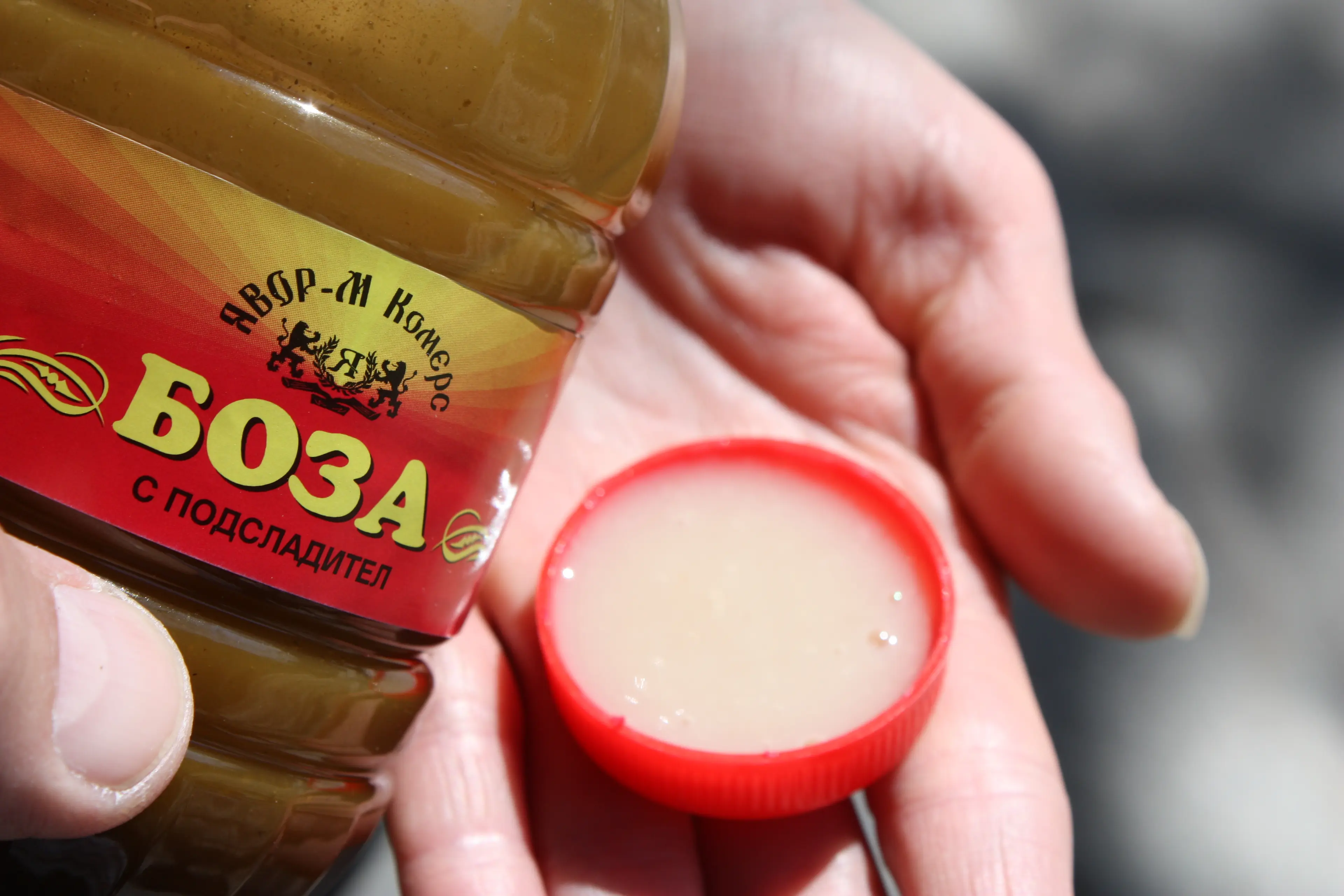
Boza
A sweet, slightly fermented drink made from millet, maize, wheat, or barley. It's a traditional and popular drink in Plovdiv.
Best time to visit
The best time to visit Plovdiv, Bulgaria is from late spring to early fall, specifically May through October. During these months, the weather is generally warm and pleasant, perfect for exploring the city's ancient ruins, museums, and beautiful old town. The city also hosts various cultural events and festivals during this period, such as the Night of Museums and Galleries in September and the International Folklore Festival in August. However, if you're a winter sports enthusiast, you might also consider visiting in the winter when you can enjoy skiing in the nearby Rhodope Mountains.
How to get around
Walk
Plovdiv is a compact city, especially the central area and the Old Town. Walking is a great way to explore the city, its beautiful architecture, and its many parks.
Bicycle
Plovdiv has a growing network of bicycle lanes and paths. Bicycles can be rented from various locations throughout the city.
Public Bus
Plovdiv has an extensive public bus network that covers the entire city. Buses are frequent and reliable, and they can take you to all major attractions and neighborhoods.
Taxi
Taxis are plentiful in Plovdiv and can be hailed on the street, called by phone, or ordered through a smartphone app. They are a convenient way to get around, especially if you're traveling with luggage or in a group.
Ridesharing
Ridesharing services, such as Uber and local equivalent TaxiMe, are available in Plovdiv. They offer a convenient and often cheaper alternative to traditional taxis.
Train
Plovdiv's central train station connects the city with other major cities in Bulgaria and the rest of Europe. It's a good option if you're planning to visit other parts of the country or the continent.
Car Rental
Renting a car is a good option if you plan to explore the surrounding region. However, keep in mind that parking can be difficult in the city center.
Tram
Plovdiv has a small tram network. It's not as extensive as the bus network, but it can be a convenient way to get around certain parts of the city.
Airport Transfer
If you're flying into Plovdiv, you can arrange for a private transfer to take you from the airport to your accommodation. This can be a convenient and stress-free way to start your trip.
Important information
Currencyлв BGN
Time zoneUTC+2
Driving sideRight
Emergency phoneAmbulance: 150; Fire: 160; Police: 166
Drinking waterOpt for bottled water
Power sockets
Voltage230 V
Things to know about Plovdiv, Bulgaria as a first time visitor
1
Bulgarian is the official language in Plovdiv, but English is commonly spoken in tourist areas and hotels.
2
The currency in Bulgaria is the Bulgarian Lev (BGN). Credit cards are widely accepted, but it's a good idea to carry some cash for smaller establishments.
3
Plovdiv has a continental climate, with hot summers (average highs of 86°F/30°C) and cold winters (average lows of 23°F/-5°C).
4
Tipping is customary in Bulgaria. In restaurants, it's typical to leave around 10% of the total bill.
5
Public transportation in Plovdiv is reliable and affordable. It includes buses, trolleys, and a small number of trams.
6
Taxis are also readily available, but make sure to use a reputable company to avoid being overcharged.
7
Plovdiv is generally safe for tourists, but like any city, it's important to be aware of your surroundings and keep an eye on your belongings.
8
Bulgaria is in the Eastern European Time zone (EET), which is 2 hours ahead of Coordinated Universal Time (UTC+2).
9
Plovdiv has a rich history and culture. It's worth learning a bit about the city's past before your visit to fully appreciate its significance.
10
Bulgarian cuisine is diverse and delicious. Be sure to try local specialties like banitsa (a pastry) and shopska salad.
11
Plovdiv is known for its wine, so consider visiting a local winery or trying some Bulgarian wine at a restaurant.
12
Smoking is very common in Bulgaria and is allowed in many public places, including some restaurants and bars.
13
Bulgaria uses the Type F power socket, the same as most of Europe. The standard voltage is 230 V, and the standard frequency is 50 Hz.
14
Plovdiv is a pedestrian-friendly city with a compact city center, making it easy to explore on foot.
15
Bulgaria is part of the European Union, but it's not part of the Schengen Area. This means you may need a visa to visit, depending on your nationality.
16
Pharmacies in Bulgaria are well-stocked and can provide assistance for minor health issues. For emergencies, dial 112.
17
Public restrooms are not always easy to find in Plovdiv, so it's a good idea to use the restroom at restaurants or cafes when you have the chance.
18
Plovdiv has a vibrant nightlife, with many bars and clubs located in the Kapana district.
19
Bulgarians shake their heads to mean 'yes' and nod for 'no', which can be confusing for foreigners.
20
Bulgaria has a zero-tolerance policy for drinking and driving. The legal blood alcohol limit is 0.00%.
Basic Bulgarian to know as a first time visitor
English phrase | Native phrase | Pronunciation | When to use it |
|---|---|---|---|
Hello | Здравей | Zdravey | Greeting someone |
Goodbye | Довиждане | Dovizhdane | Leaving or saying goodbye |
Please | Моля | Molya | Making a request |
Thank you | Благодаря | Blagodarya | Expressing gratitude |
Yes | Да | Da | Agreeing or confirming |
No | Не | Ne | Disagreeing or denying |
Excuse me | Извинете | Izvinete | Getting attention or apologizing |
I'm sorry | Съжалявам | Sazhalyavam | Apologizing |
Do you speak English? | Говорите ли английски? | Govorite li angliyski? | Trying to communicate |
I don't understand | Не разбирам | Ne razbiram | Having difficulty understanding |
Where is the bathroom? | Къде е тоалетната? | Kade e toaletnata? | Looking for the bathroom |
How much does this cost? | Колко струва това? | Kolko struva tova? | Shopping or dining |
I would like... | Бих искал... | Bih iskal... | Making a request |
Help! | Помощ! | Pomosht! | In an emergency |
Call the police | Повикайте полицията | Povikayte politsiyata | In an emergency |
I need a doctor | Трябва ми лекар | Tryabva mi lekar | In an emergency |
Can I use your phone? | Мога ли да използвам телефона ви? | Moga li da izpolzvam telefona vi? | Asking for help |
Can you help me? | Можете ли да ми помогнете? | Mozhete li da mi pomognete? | Asking for help |
I'm lost | Изгубих се | Izgubih se | Asking for directions |
Can you show me on the map? | Можете ли да ми покажете на картата? | Mozhete li da mi pokazhete na kartata? | Asking for directions |
Packing List
Clothing
Comfortable walking shoes
Lightweight clothing
Sweater or jacket for cooler evenings
Sunglasses
Hat or cap for sun protection
Toiletries
Travel-size toothpaste
Toothbrush
Travel-size shampoo and conditioner
Deodorant
Sunscreen
Hand sanitizer
Travel documents and essentials
Passport
Driver's license or ID card
Credit and debit cards
Cash in local currency (Bulgarian lev)
Travel insurance documents
Hotel reservation confirmation
Emergency contacts and addresses
Electronics and gadgets
Smartphone
Charger for smartphone
Power bank
Camera
Headphones
Miscellaneous items
Reusable water bottle
Snacks
Travel guidebook for Plovdiv
Travel pillow
Earplugs
Travel first aid kit
Weather Conditions
When visiting Plovdiv, Bulgaria, it's important to consider the city's continental climate. Summers are typically hot and dry, with temperatures often reaching up to 86°F (30°C), while winters can be quite cold, with temperatures dropping to around 32°F (0°C) or lower. Therefore, pack your clothing accordingly. If you're planning a summer visit, lightweight, breathable clothing is recommended, along with a hat and sunscreen to protect against the strong sun. Despite the heat, remember that Bulgarian culture is quite conservative, so it's advisable to avoid overly revealing clothing, particularly when visiting religious sites. In contrast, if you're visiting in winter, be prepared for the cold. Pack warm clothing, including a heavy coat, gloves, and a hat. Snow is common, so waterproof shoes are also a good idea. Despite the cold, winter can be a beautiful time to visit Plovdiv, as the snow often adds a magical touch to the city's historic sites. Spring and autumn are generally mild, with temperatures ranging between 50°F (10°C) and 68°F (20°C). These seasons can be a great time to visit, as the weather is comfortable and the city is less crowded than in summer. However, rain can be more frequent during these periods, so it's wise to pack a waterproof jacket or umbrella. Regardless of when you visit, keep an eye on the weather forecast. Plovdiv's weather can sometimes be unpredictable, and being prepared will ensure you have the best possible experience.
| Month | Hi / Lo (°C) | Weather Overview |
|---|---|---|
January | 7° / -3° | January is the coldest month in Plovdiv, with temperatures often dropping below freezing. It's a good time to visit if you enjoy winter sports or prefer less crowded tourist spots. |
February | 9° / -2° | February is still quite cold, but the temperatures start to rise slightly. It's a good time to visit if you want to experience the end of the Bulgarian winter. |
March | 15° / 1° | March sees the beginning of spring, with temperatures starting to rise. The weather can still be quite unpredictable, so pack a mix of warm and cool clothing. |
April | 20° / 5° | April is a great time to visit Plovdiv, as the weather is generally mild and the city starts to bloom. It's a great time for outdoor activities and sightseeing. |
May | 25° / 10° | May is a beautiful month to visit Plovdiv, with warm temperatures and plenty of sunshine. It's a great time to explore the city's parks and outdoor attractions. |
June | 29° / 14° | June is the start of the summer season in Plovdiv, with high temperatures and long days. It's a perfect time for beach trips and outdoor activities. |
July | 32° / 16° | July is the hottest month in Plovdiv, with temperatures often exceeding 30 degrees. It's a great time to visit if you enjoy hot weather and want to experience the Bulgarian summer. |
August | 31° / 16° | August is still quite hot, but temperatures start to drop slightly towards the end of the month. It's a good time to visit if you want to enjoy the summer weather without the extreme heat of July. |
September | 26° / 12° | September is a great time to visit Plovdiv, as the weather is generally mild and the city starts to show its autumn colors. It's a great time for outdoor activities and sightseeing. |
October | 20° / 7° | October sees the start of autumn, with temperatures starting to drop. The weather can still be quite warm, so it's a good time to visit if you prefer milder temperatures. |
November | 13° / 2° | November is a quiet month in Plovdiv, with cooler temperatures and fewer tourists. It's a good time to visit if you prefer a quieter, more relaxed atmosphere. |
December | 7° / -1° | December is the start of the winter season in Plovdiv, with temperatures often dropping below freezing. It's a good time to visit if you enjoy winter sports or prefer less crowded tourist spots. |
Did you know?
Places near by Plovdiv, Bulgaria

Rila Monastery
One of Bulgaria's most significant cultural, historical and architectural monuments. It's part of the UNESCO World Heritage.
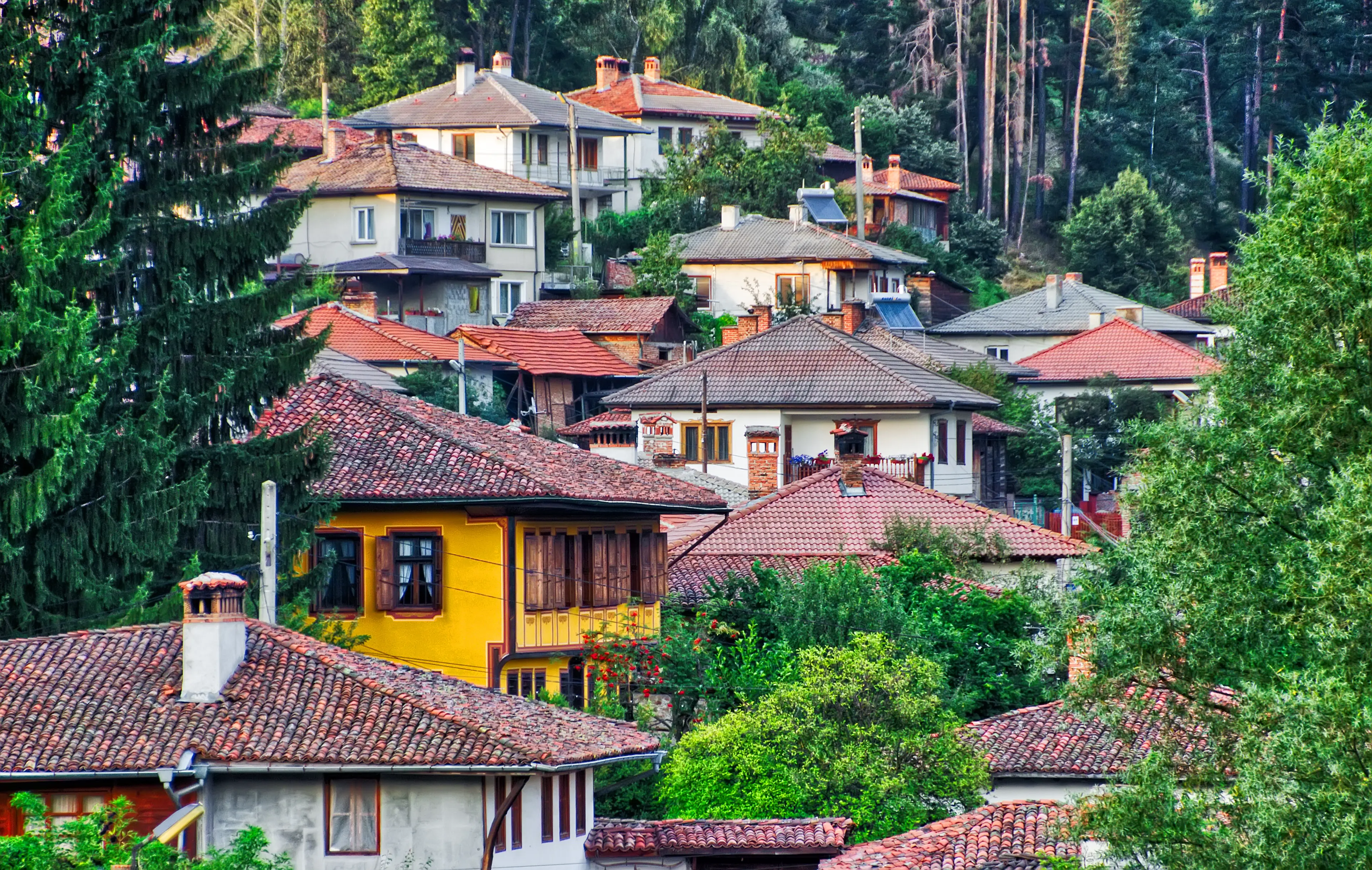
Koprivshtitsa
A historic town known for its unique architecture and for being the birthplace of many Bulgarian revolutionaries.
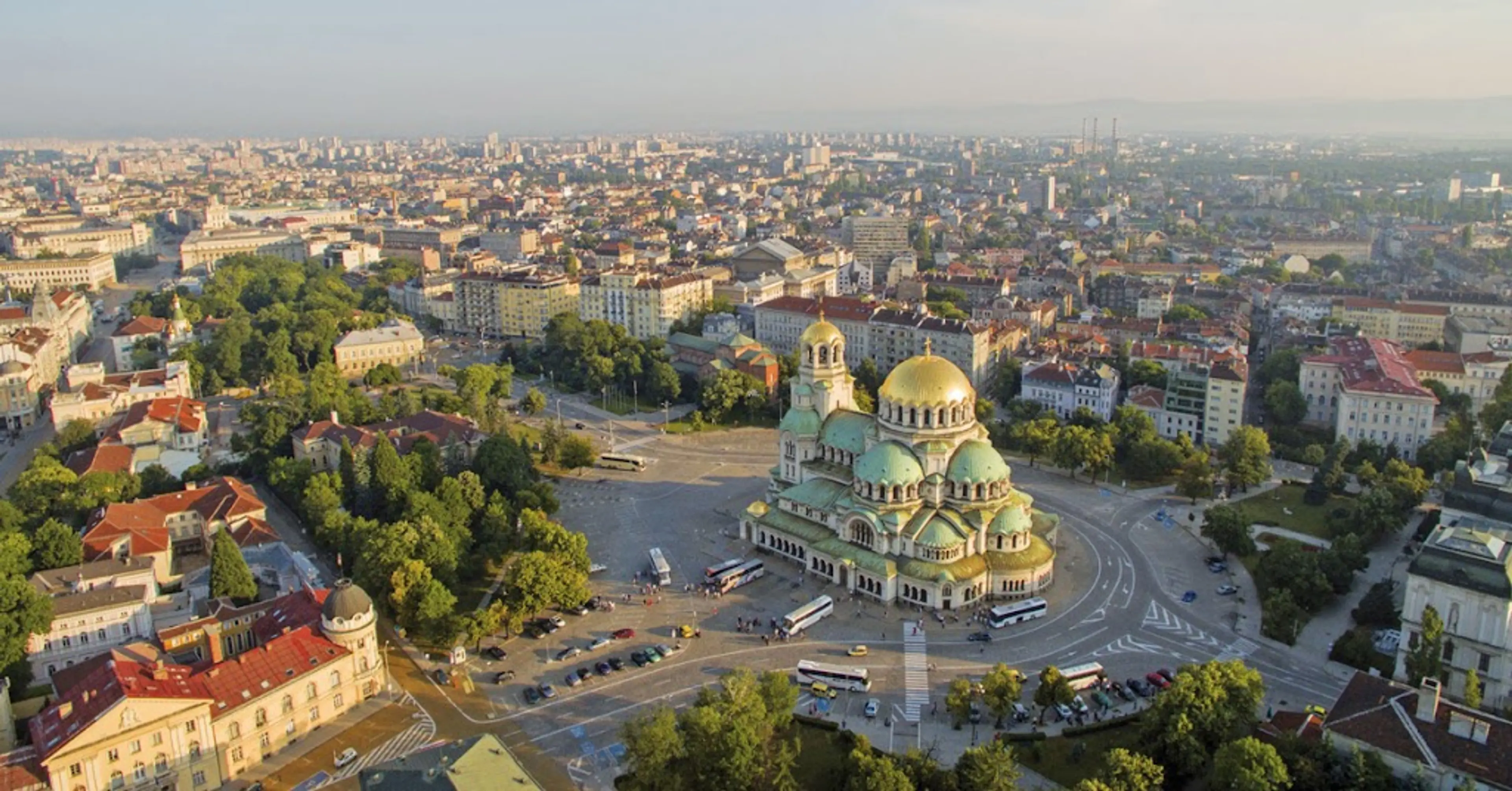
Sofia
The capital of Bulgaria, known for its diverse architecture and vibrant city life.

Veliko Tarnovo
Historic city known for its unique architecture, the Tsarevets fortress, and beautiful views.
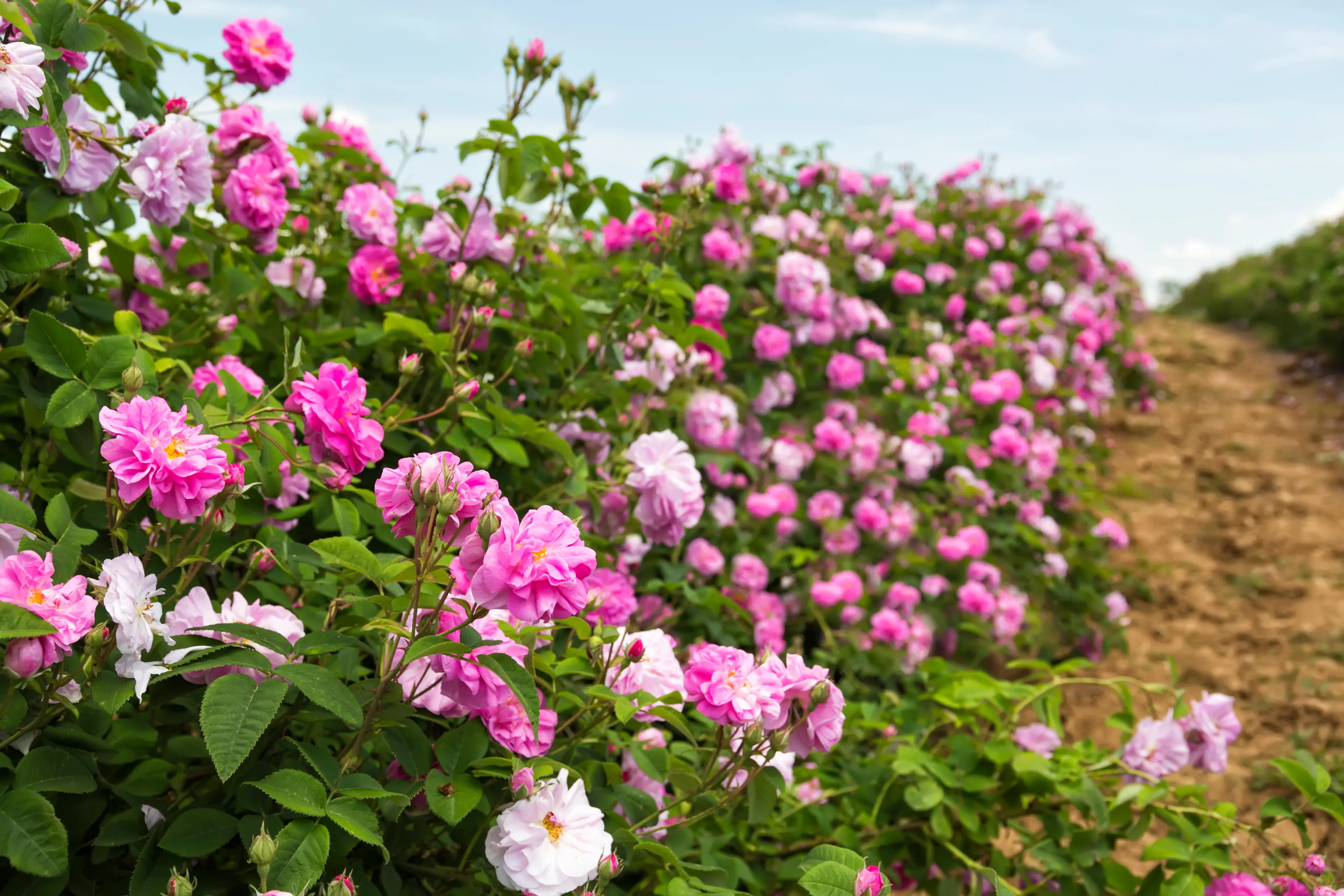
Kazanlak
City in the heart of the Valley of Roses, known for its Thracian Tomb, a UNESCO World Heritage Site.
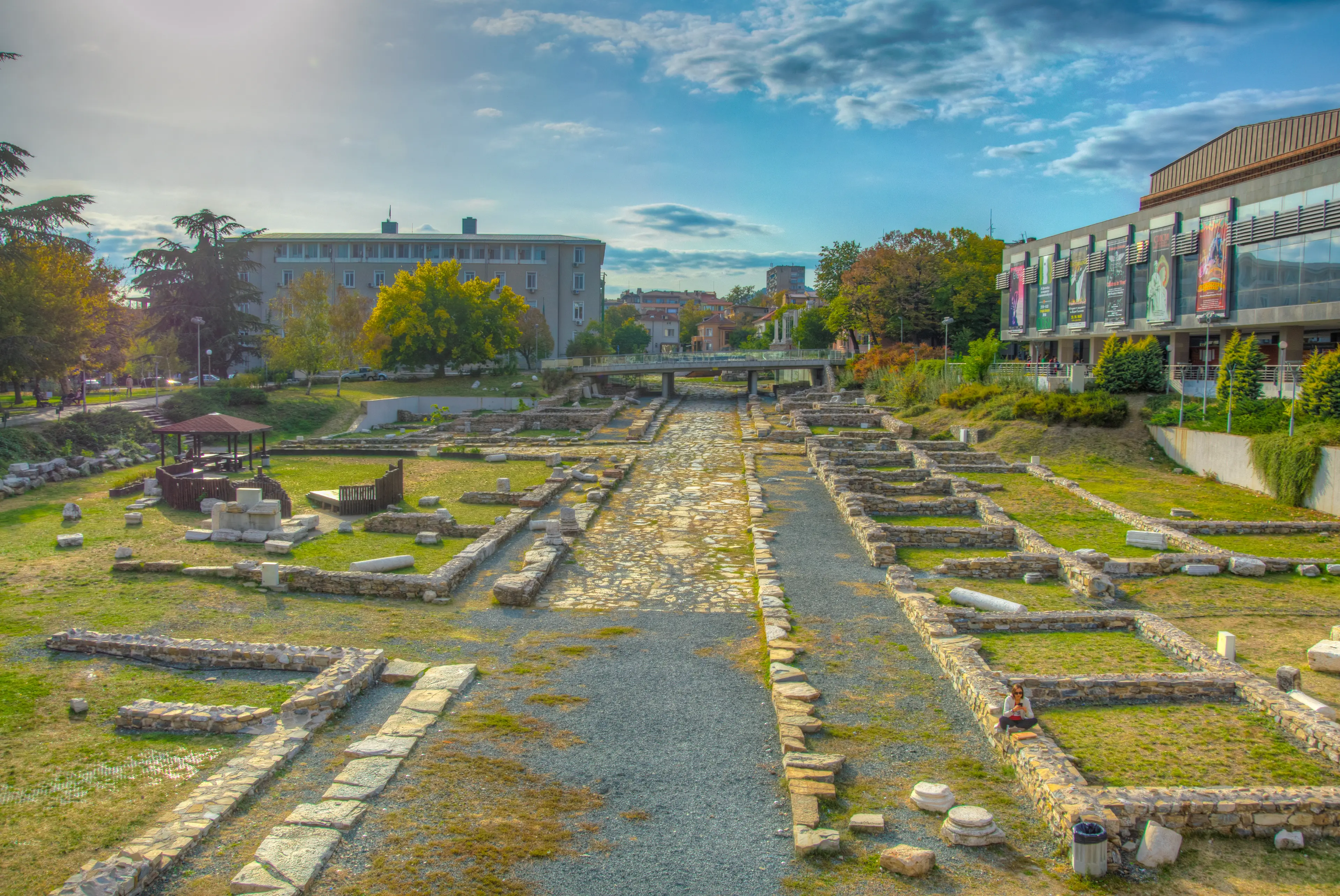
Stara Zagora
One of the oldest cities in Europe, with rich history and many ancient ruins.
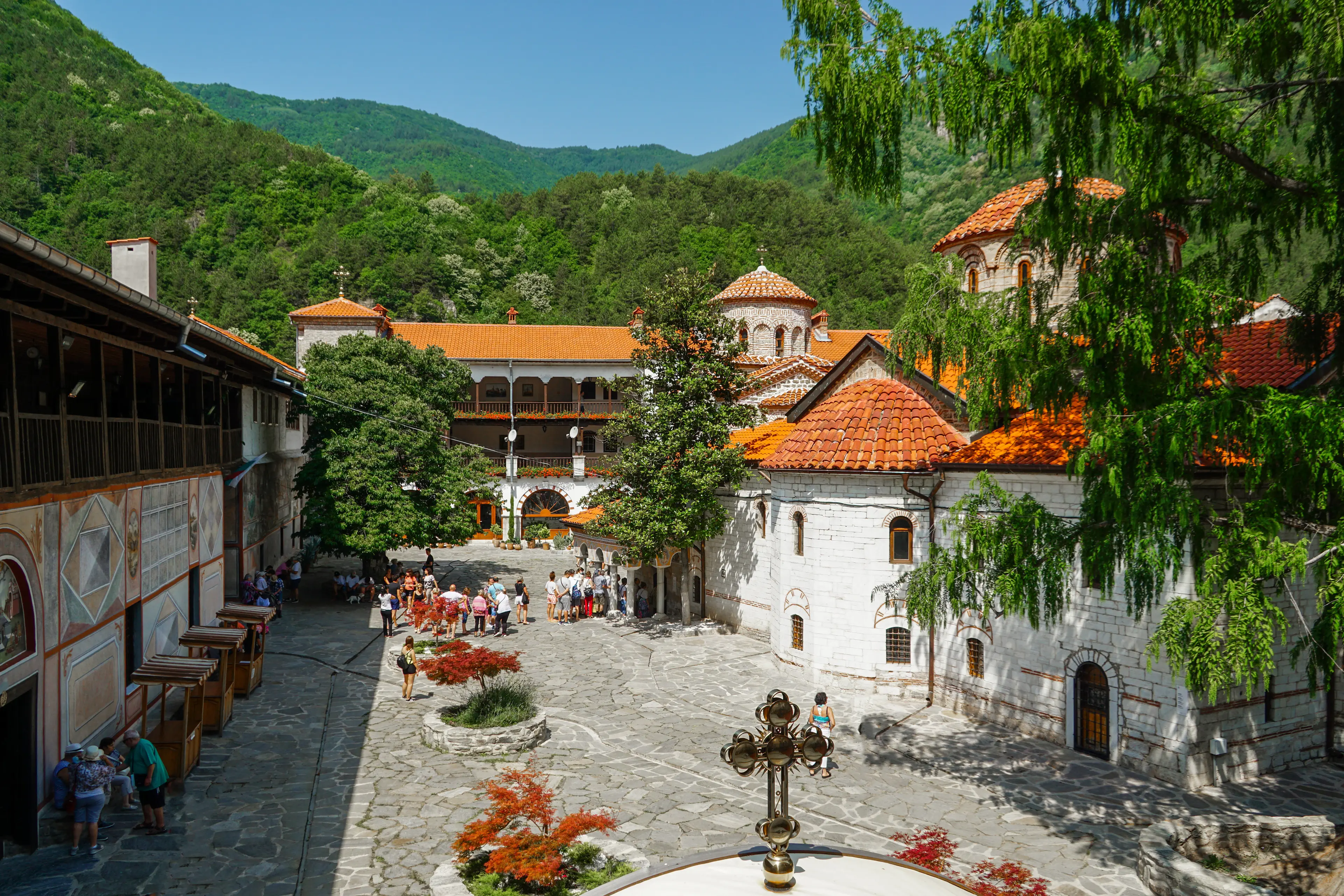
Bachkovo Monastery
The second largest monastery in Bulgaria, known for its unique architecture and frescoes.
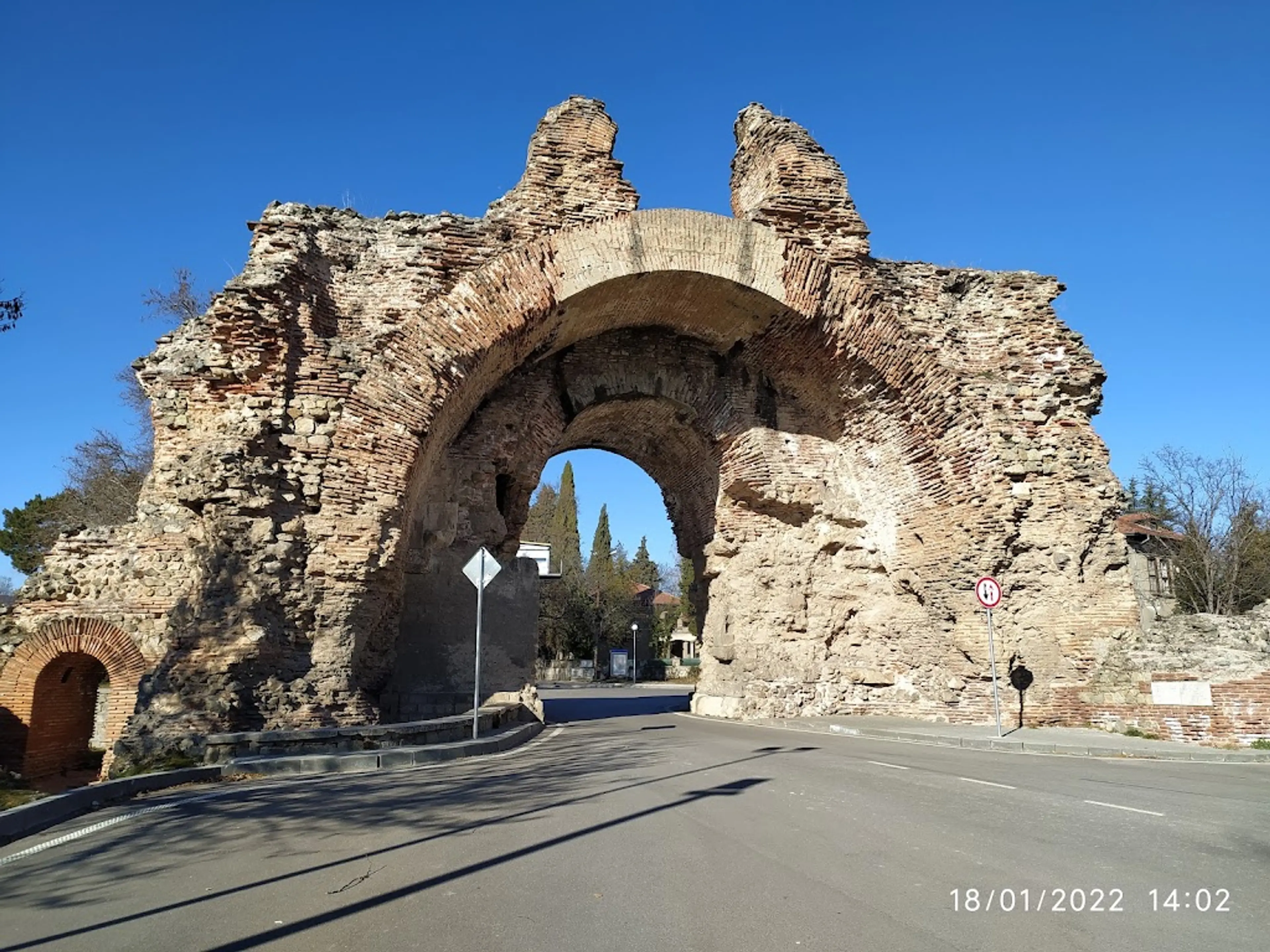
Hisarya
A small resort town known for its hot mineral springs and well-preserved Roman ruins.
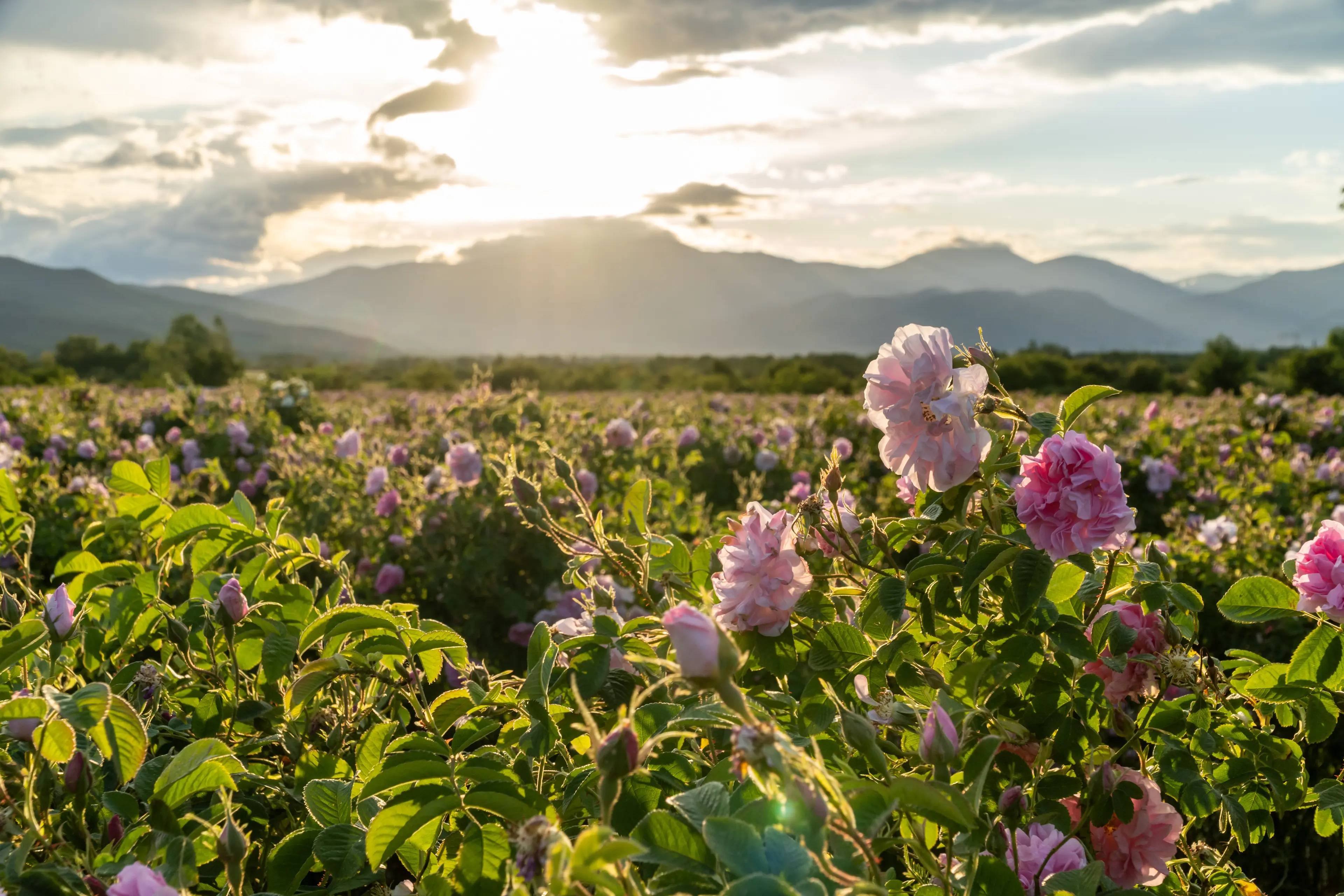
Karlovo
A picturesque town in the Rose Valley, known for its rose oil distilleries and beautiful nature.